Studienreise Georgien
Im Rahmen von der Lehrveranstaltung Imaginary Media Künstlerische Projektarbeit | Video
22-28 Oktober, 2024
Politisch Kunst machen und Politische Kunst machen! Angelegt um die historische Parlamentswahlen am 26.10.2025 wurden im Rahmen der Studienreise Künstler*innen, Kollektive, Initiativen und Institutionen kennengelernt die mit Ihrem Werk die unkonventionelle Wege in der Kunstproduktion bestreiten und/oder unmittelbar dem tagesaktuellen verheerenden politischen Druck und Zensur Widerstand leisten.
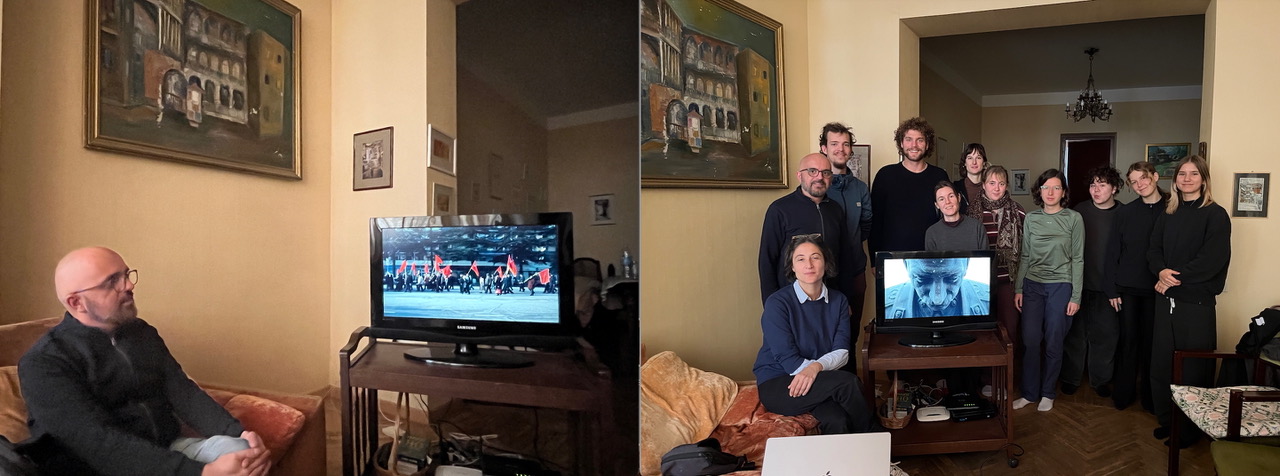
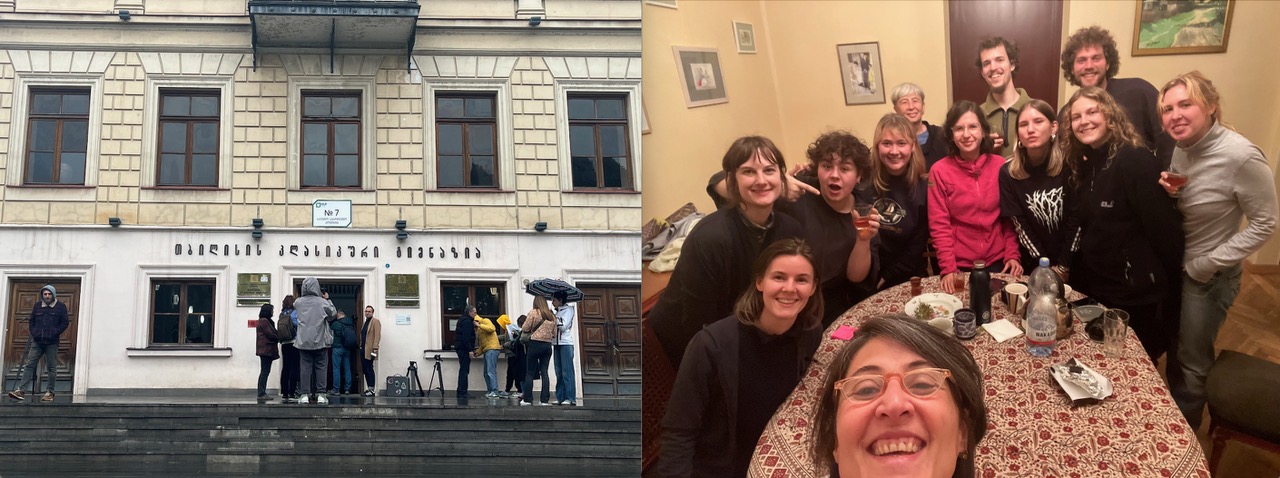
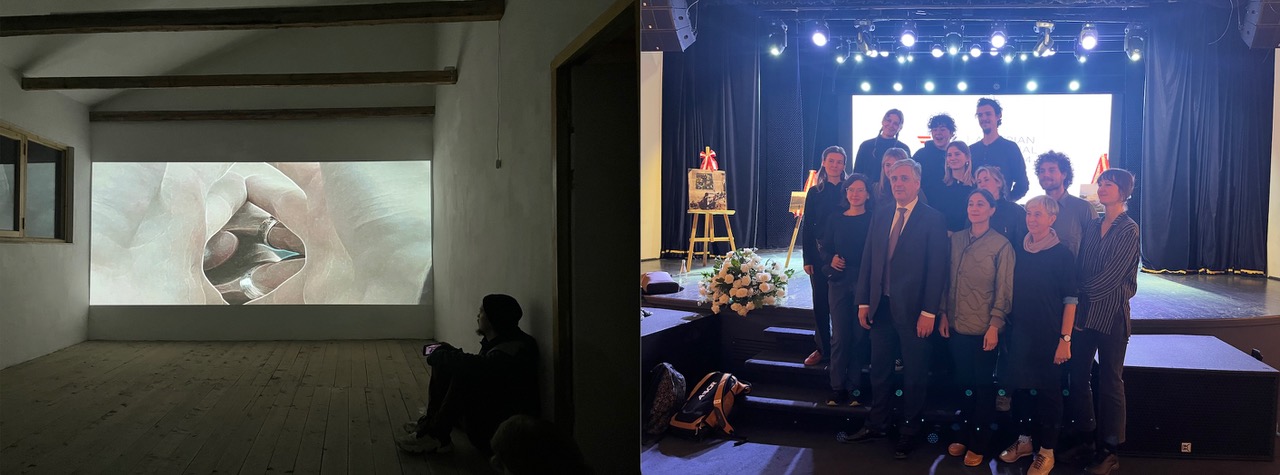
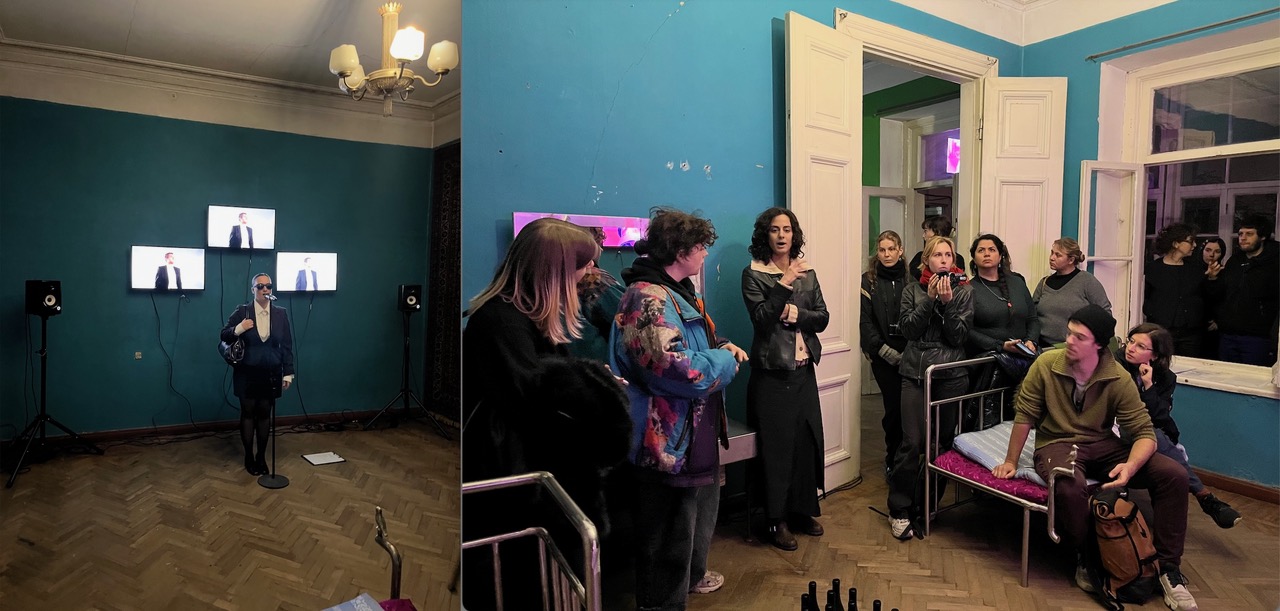
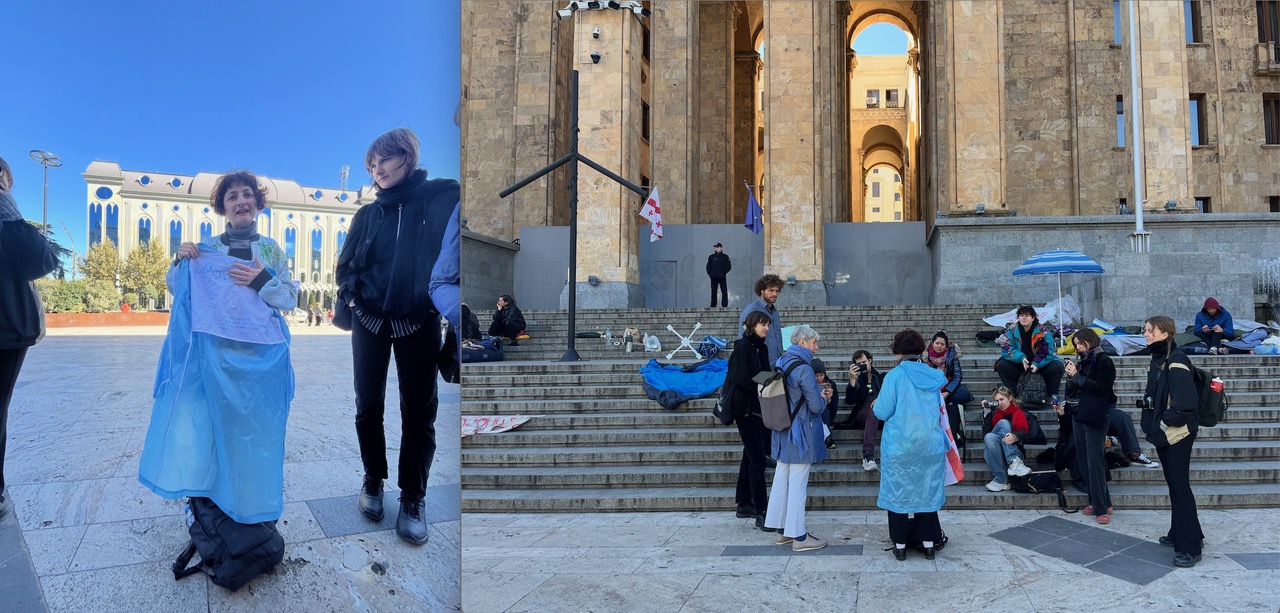
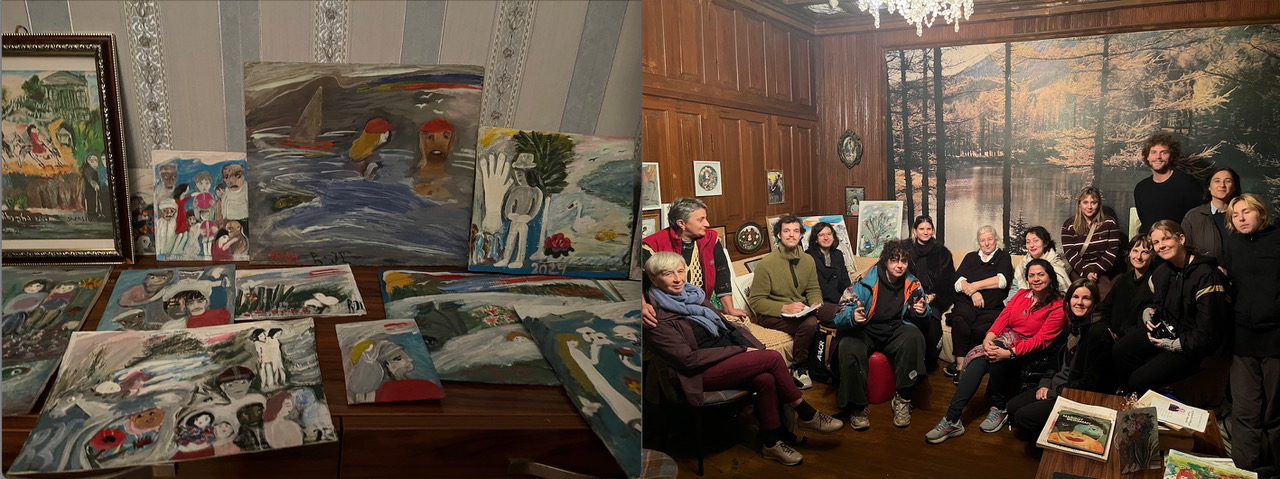
Angewandte Festival 2024
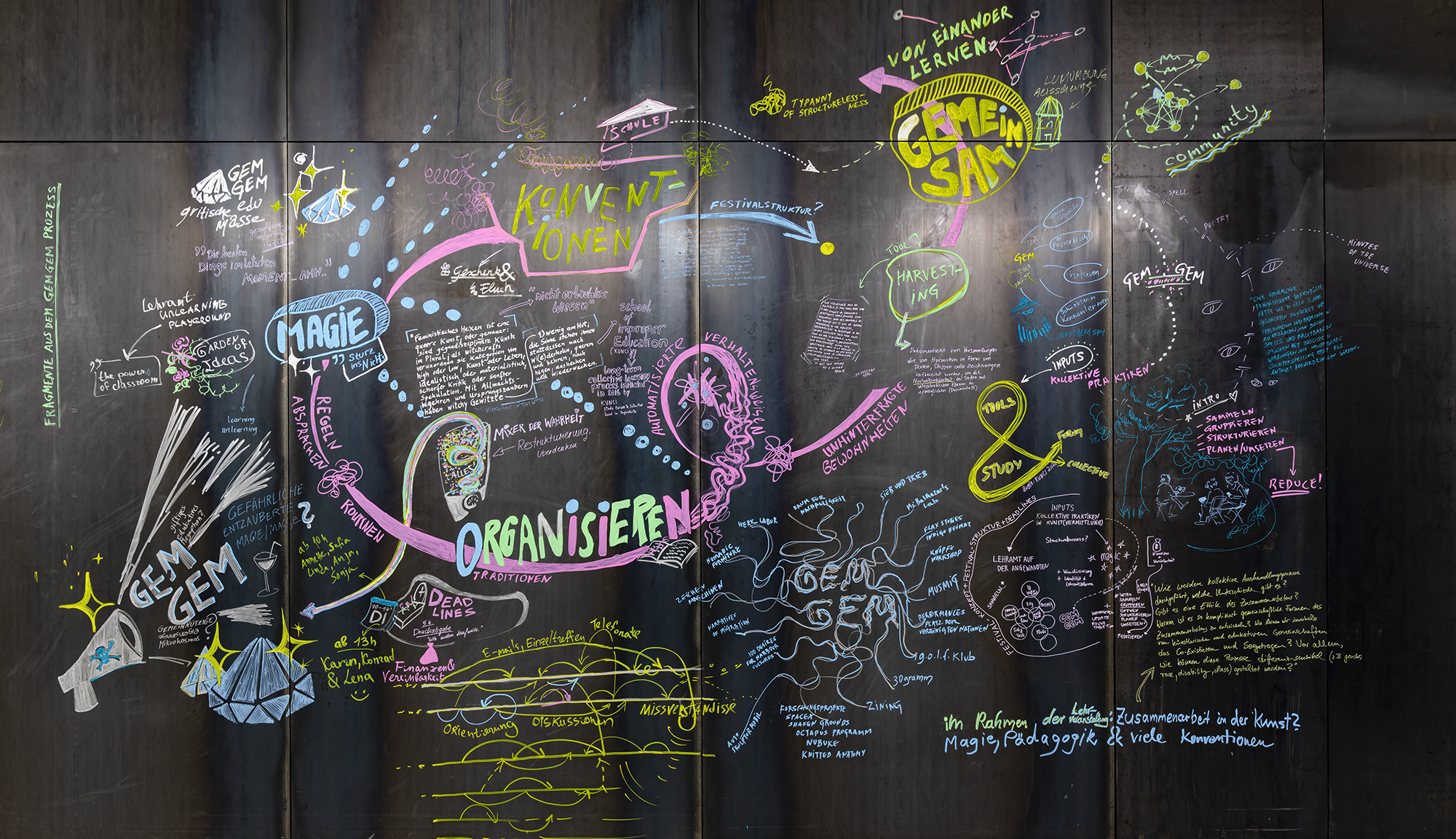
GEM ist ein wertvoller Stein, ein Teil von Gemeinschaft, ein Stück vom Gemeinsamen.
GEM GEM steht für Polyphonie – es wird als Gemeinsame Ephemere Magie erzeugt, es funktioniert als Giftiges Edukatives Megafon oder führt uns gar durch unsere Gemeinnützig-Eigensinnigen Mikrokosmen. Gemeinschaft wird zum Refugium, Sehnsuchtsort oder Gegenprogramm und oft von der komplexen Realität des Einanderaushaltens eingeholt. GEM GEM entsteht aus einer Kooperation der künstlerischen Studienfächer KKP (Kunst und Kommunikative Praxis) und DEX (Design, materielle Kultur und experimentelle Praxis). Darin werden künstlerisch-edukative Praktiken mit alltäglichen Denk- und Handlungsformen und wissenschaftlichen Methoden verwoben. Auf dieser Weise werden kritische Reflexionen zu kulturellen und ökonomischen Bedingungen, Diversität, Inklusion, Gender und Ökologie materialisiert. GEM GEM gibt Einblicke, was die Kunstpädagogik an der Angewandten bewegt. Es legt die Aufmerksamkeit auf Formate der Zusammenarbeit: es wird gemeinsam gestaltet, zusammen gedacht, kollektiv organisiert und gelebt – gefeiert wird sowieso am liebsten gemeinsam.
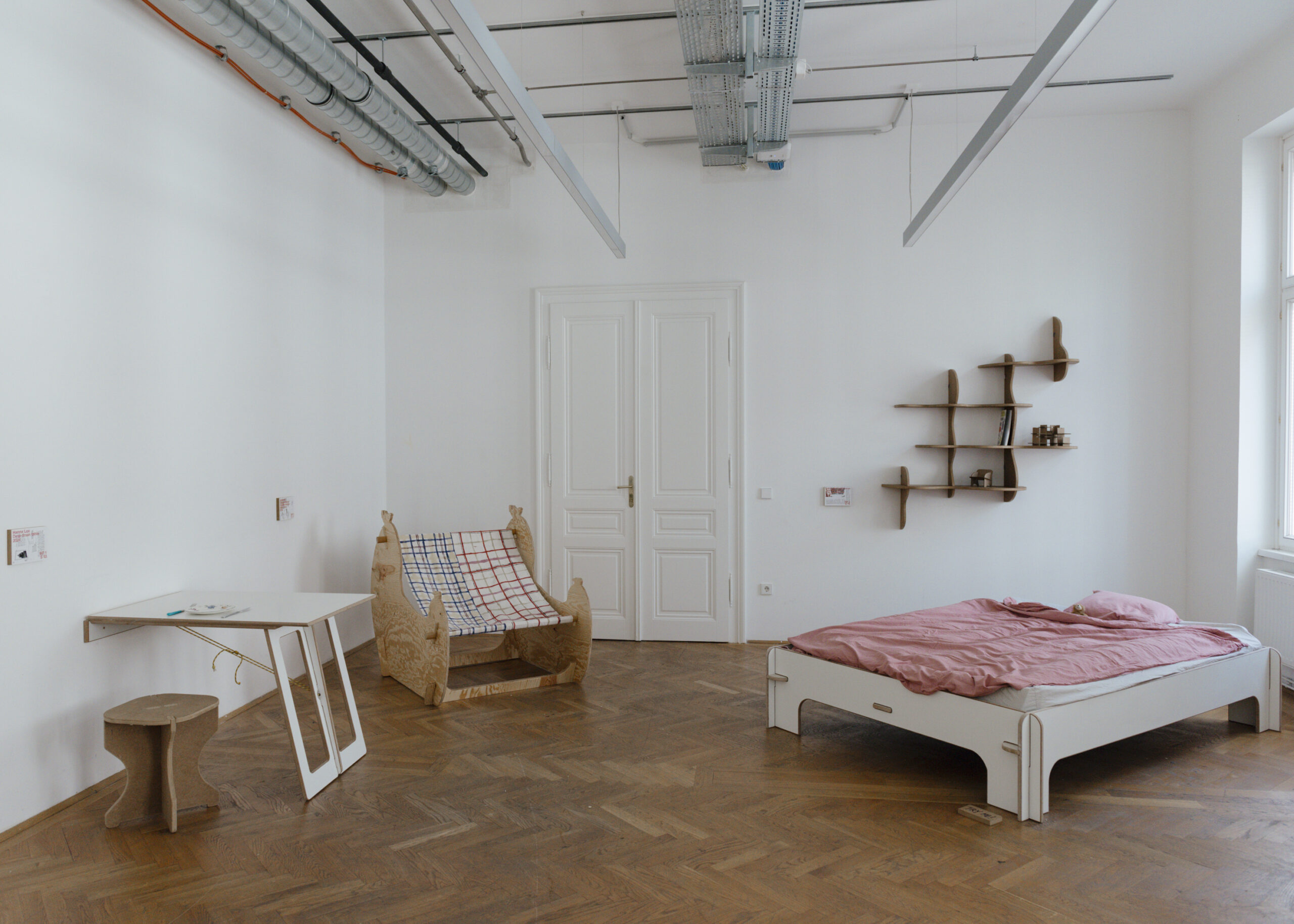
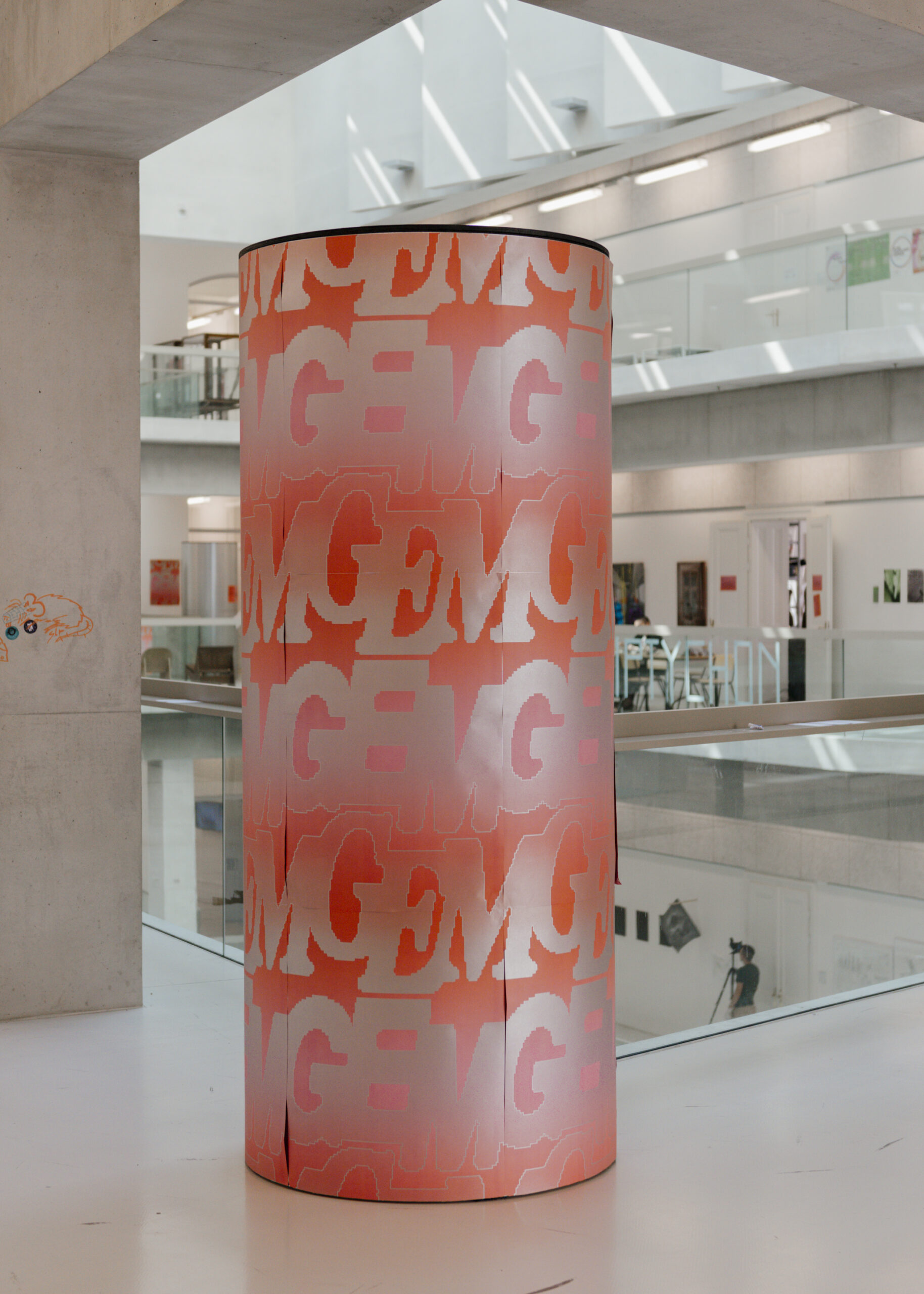
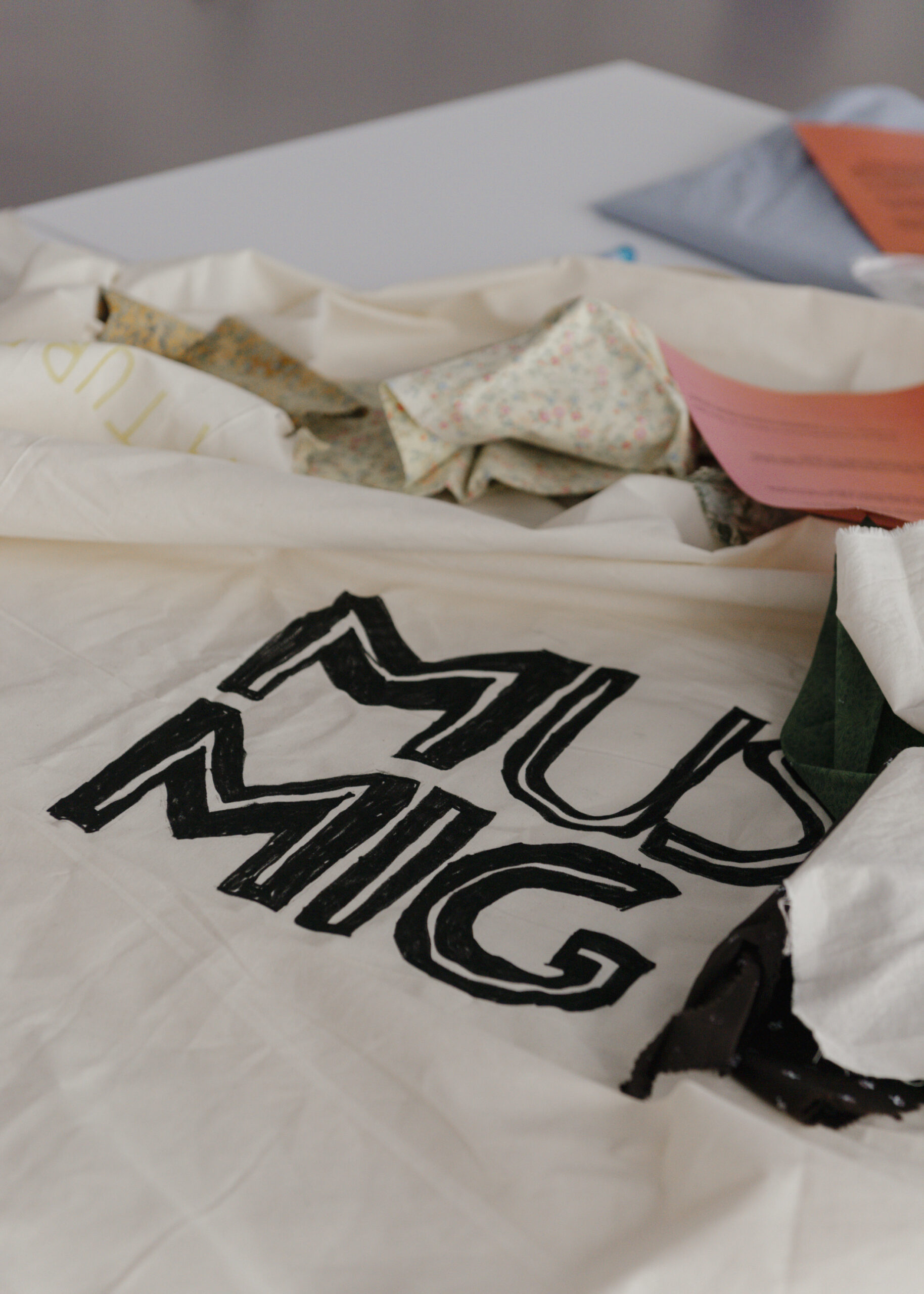
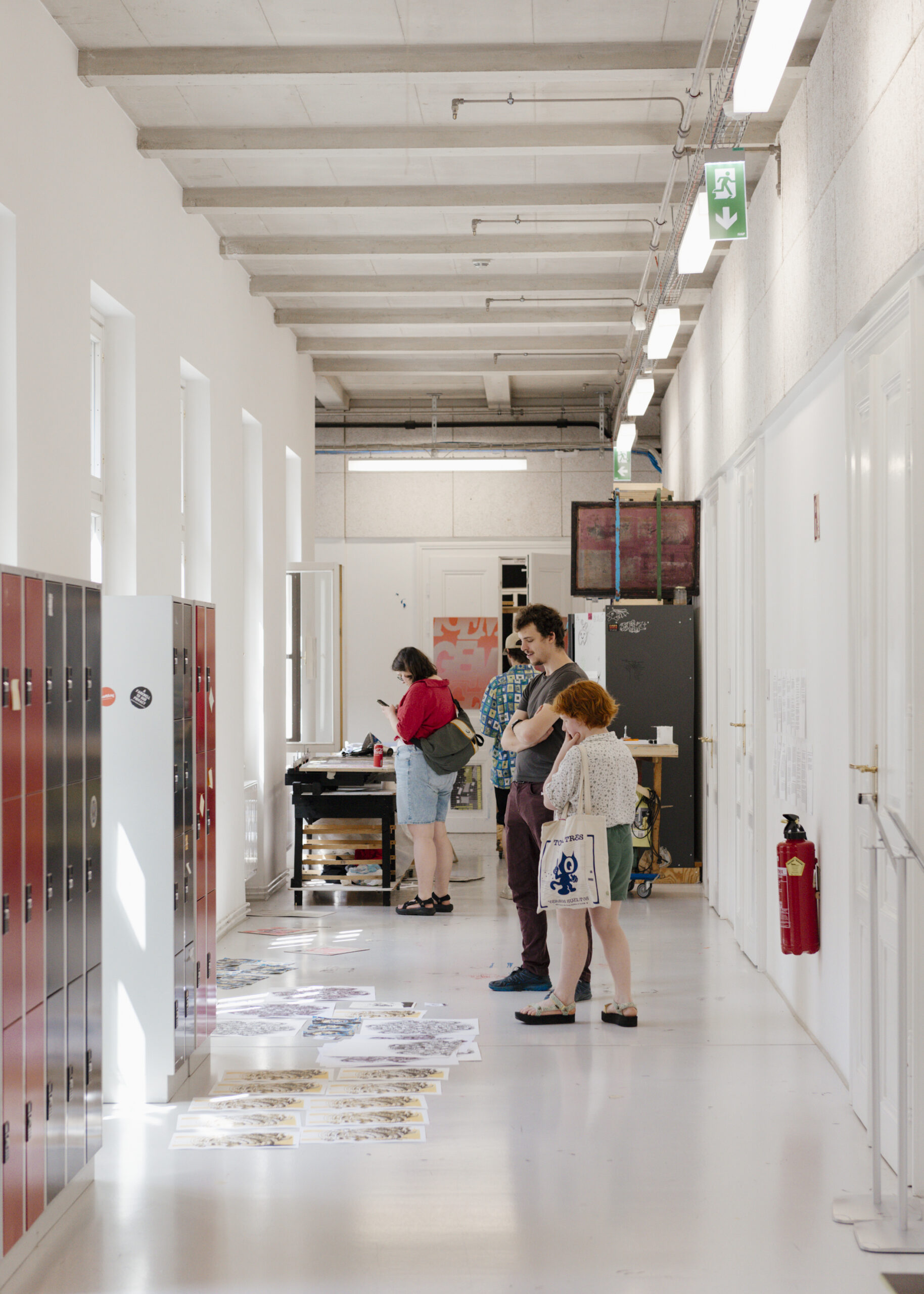
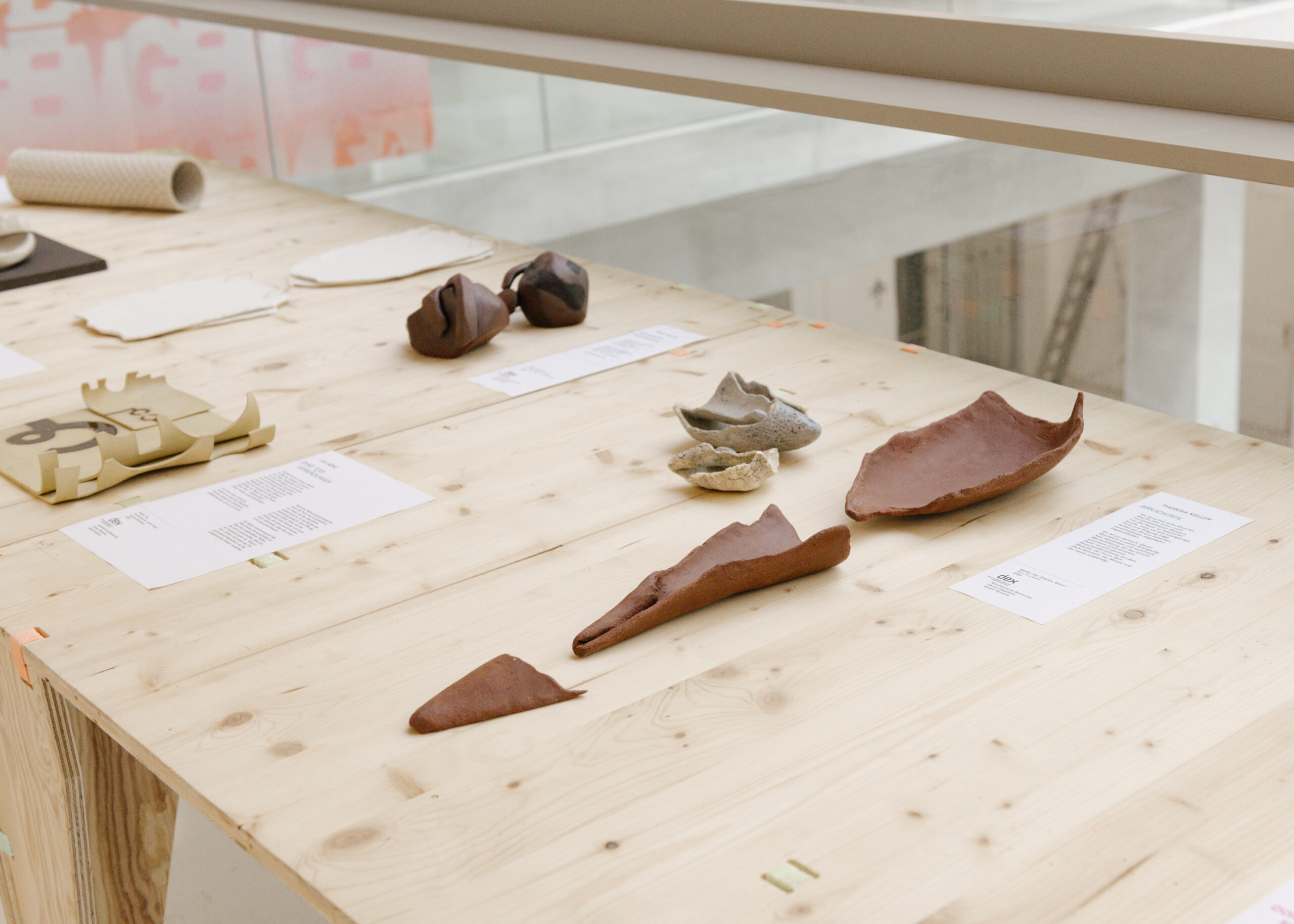
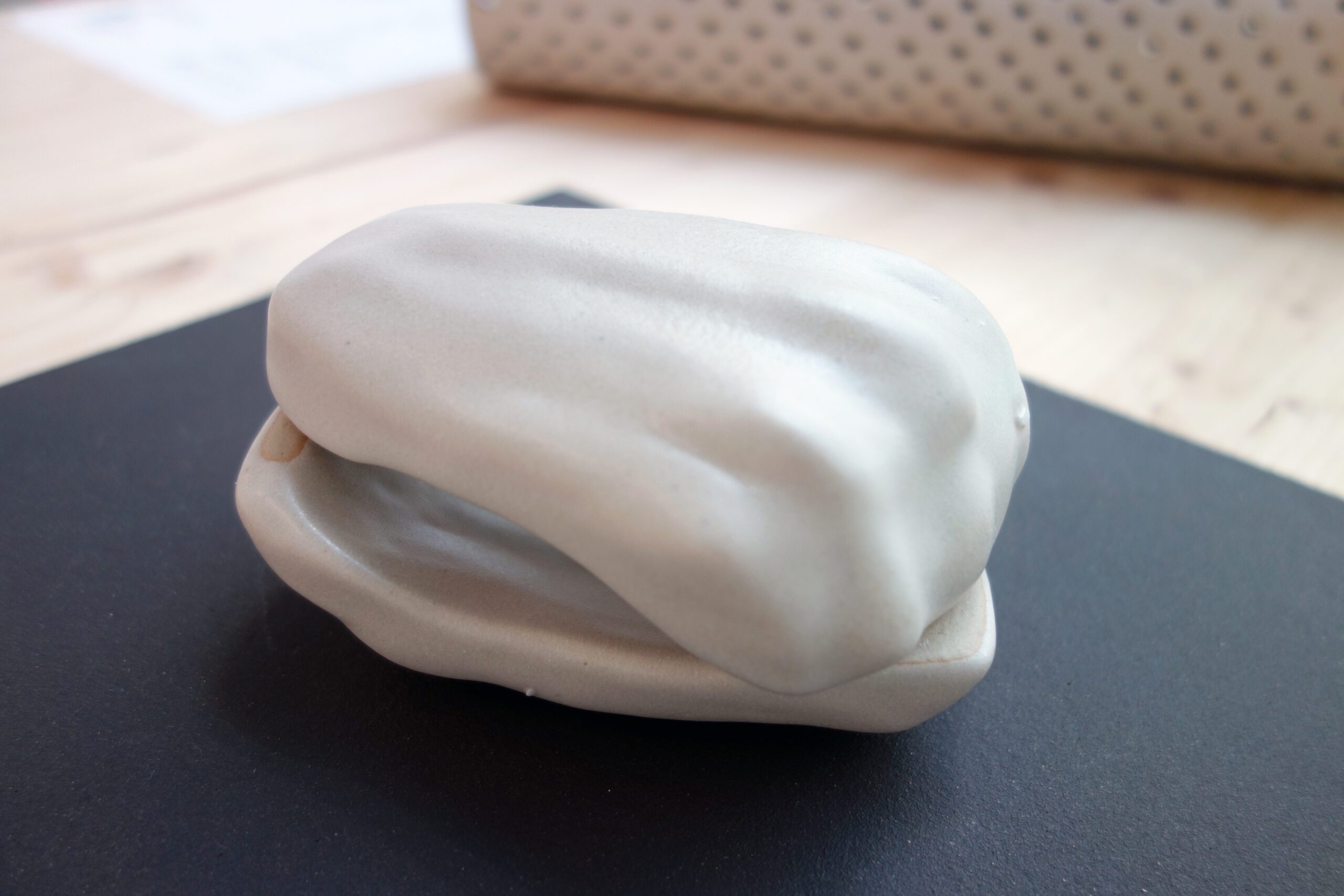
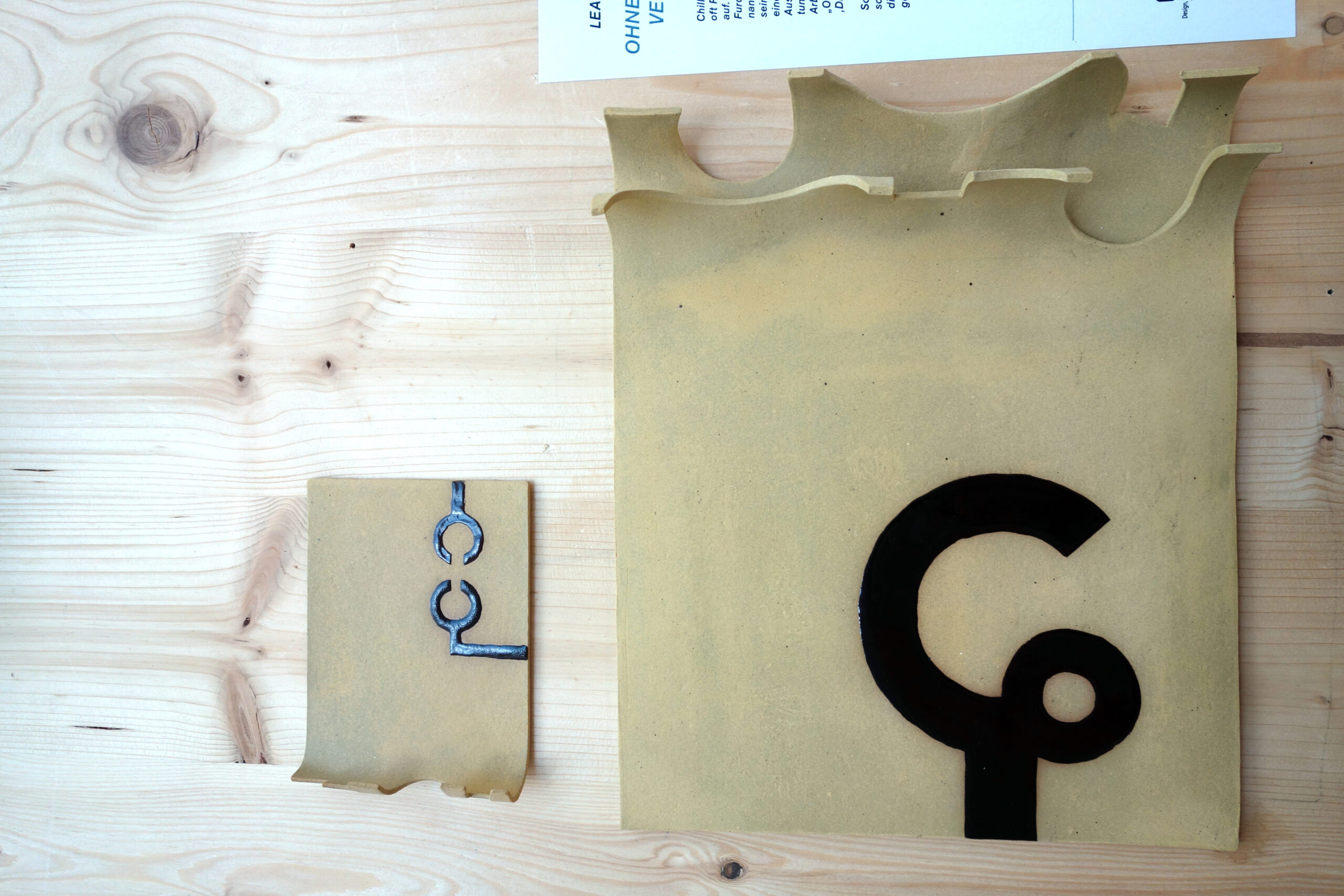
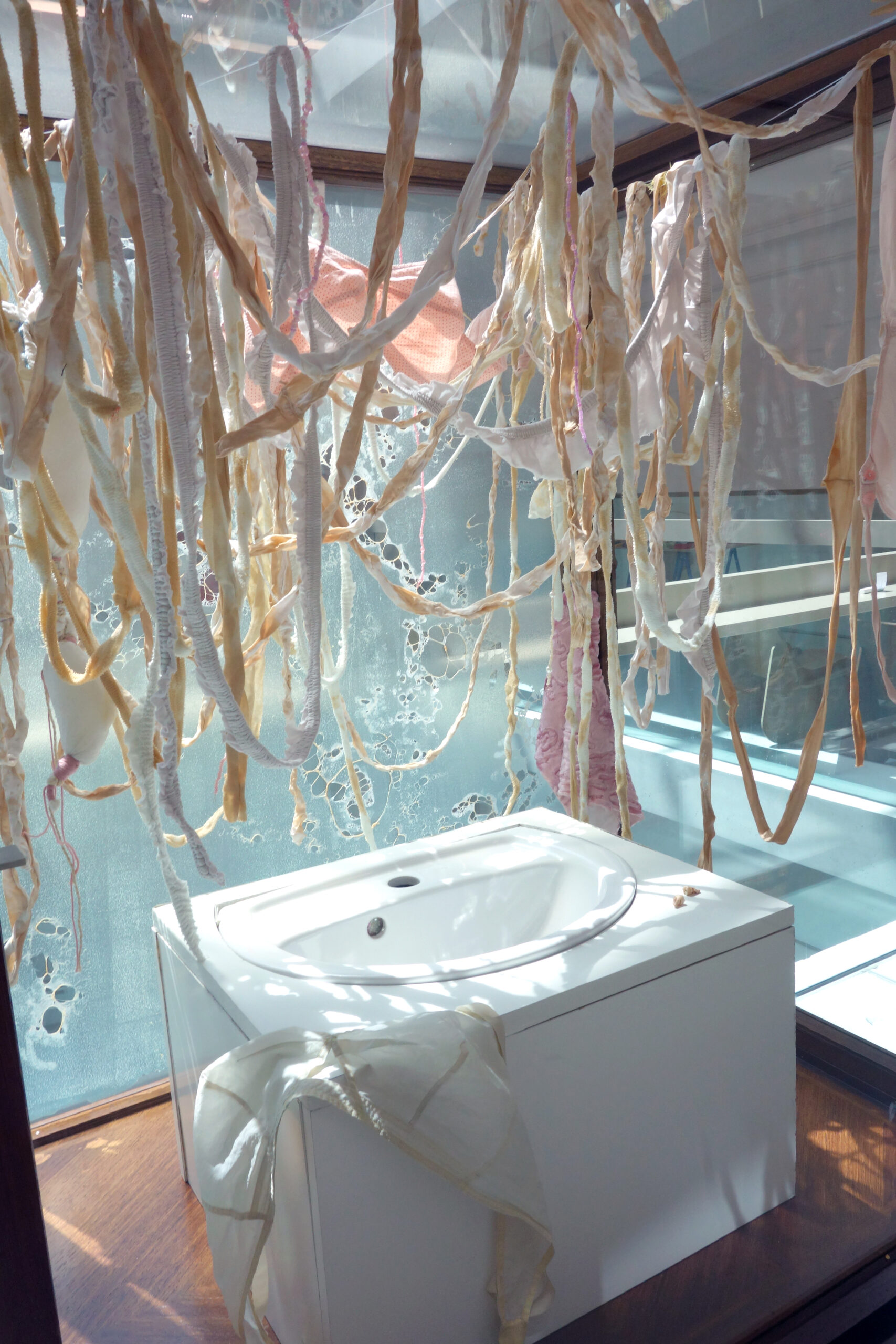
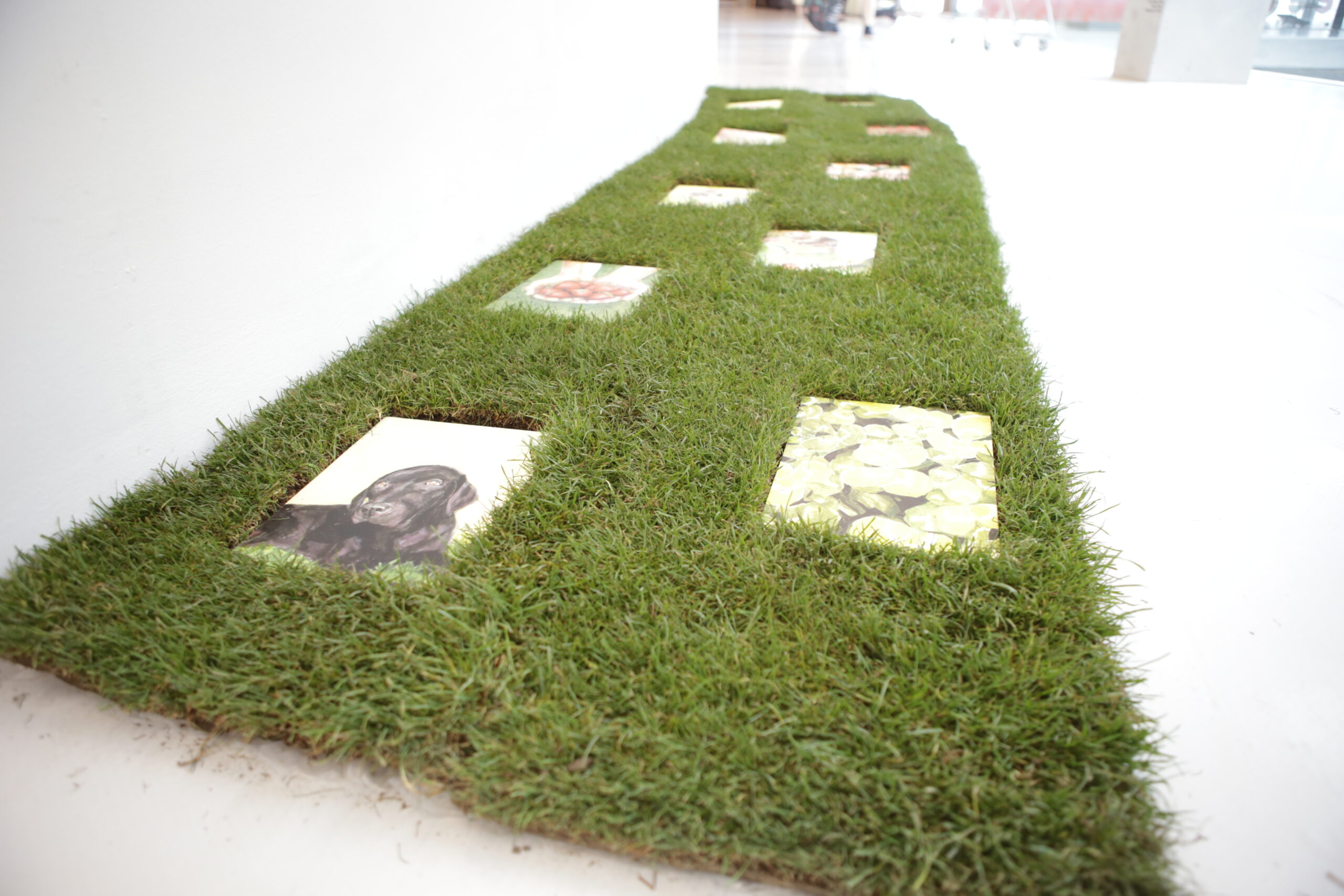
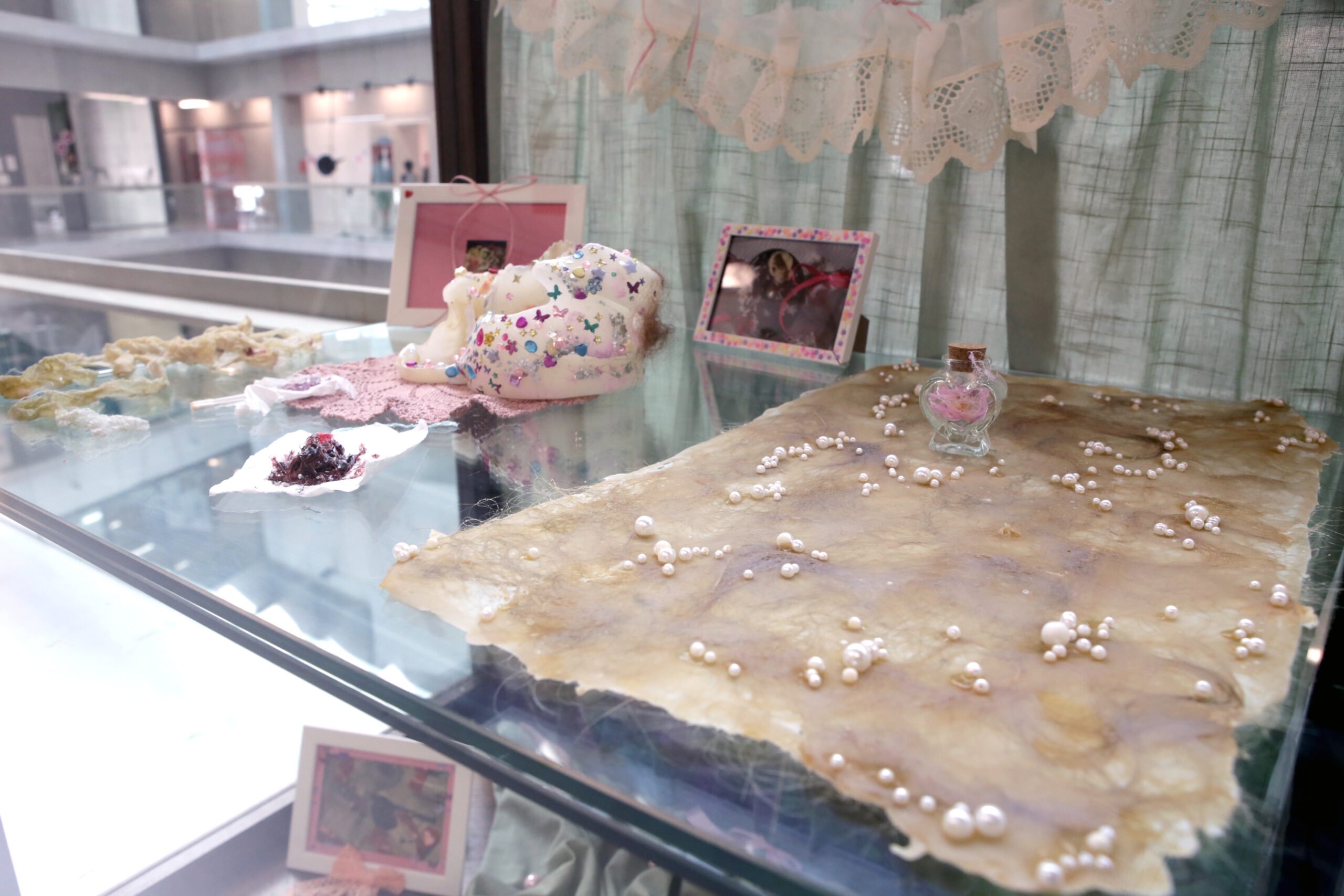
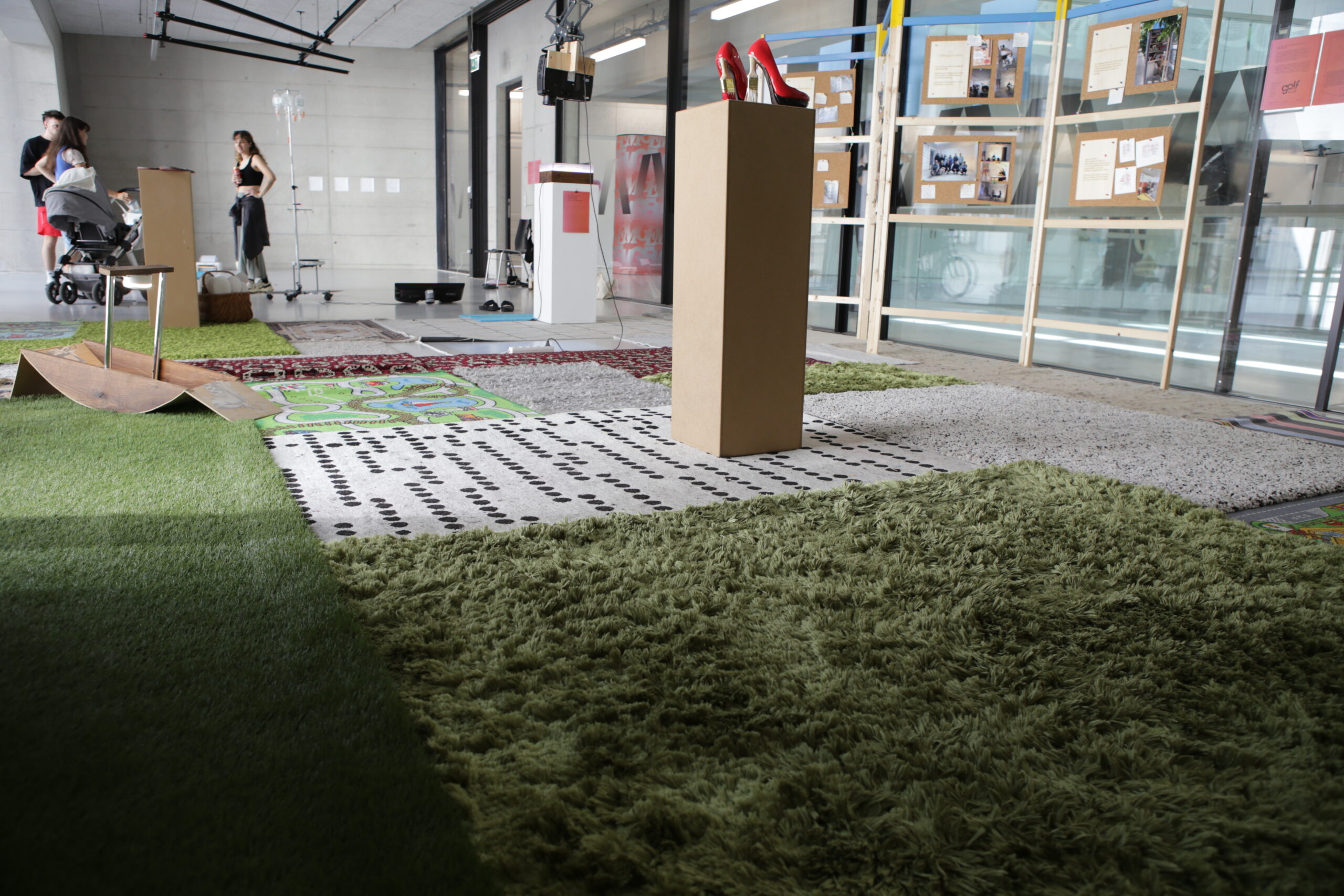
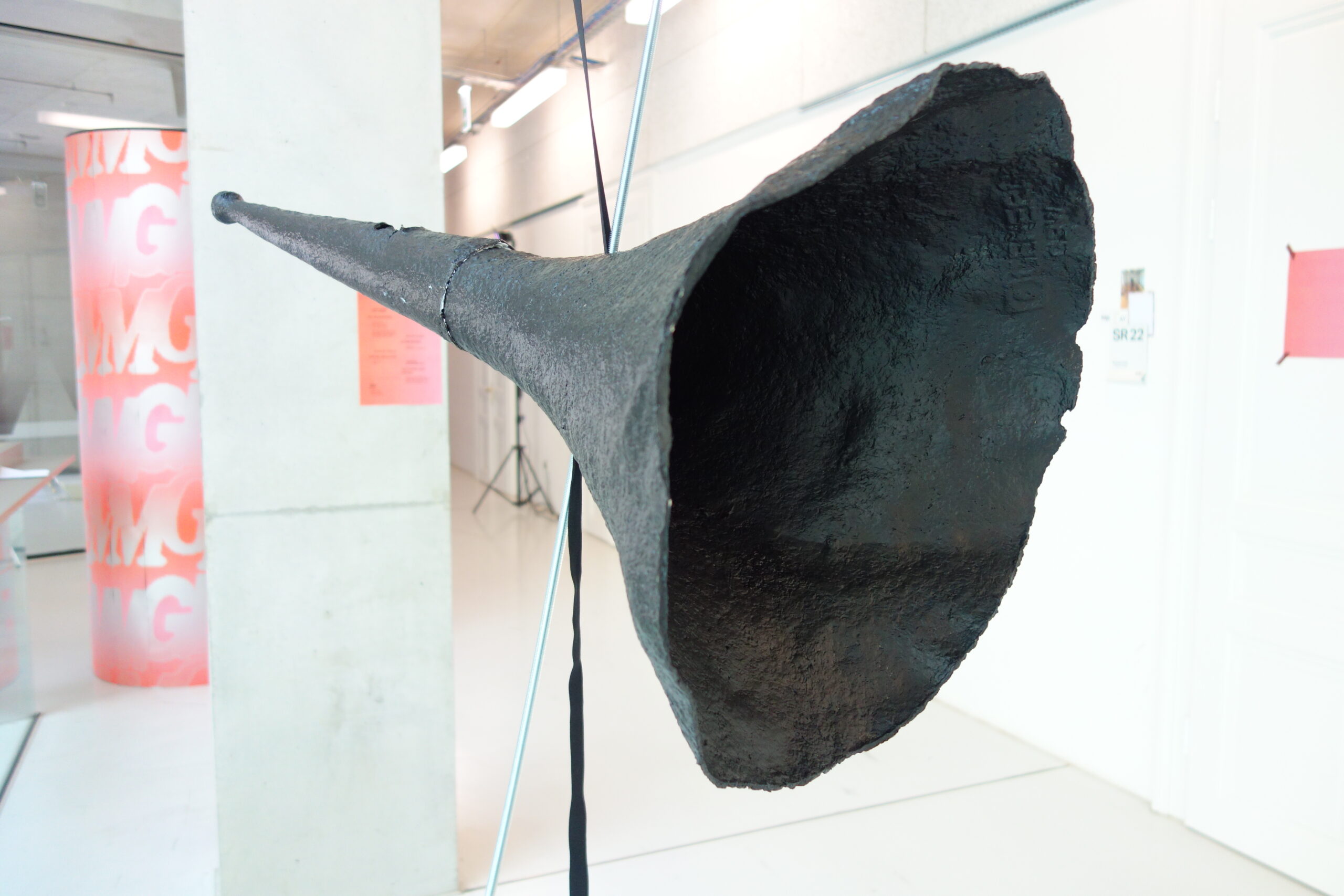
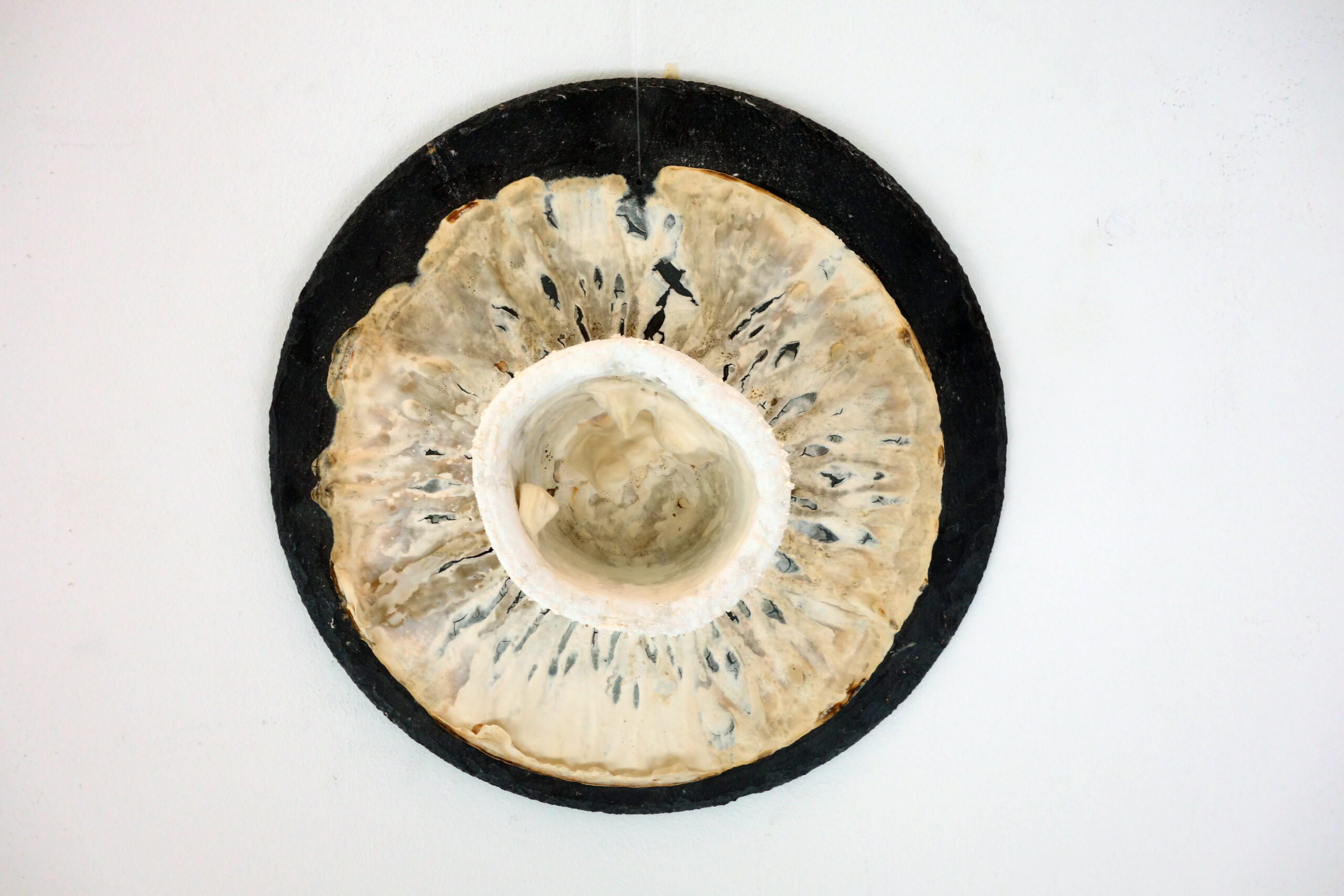
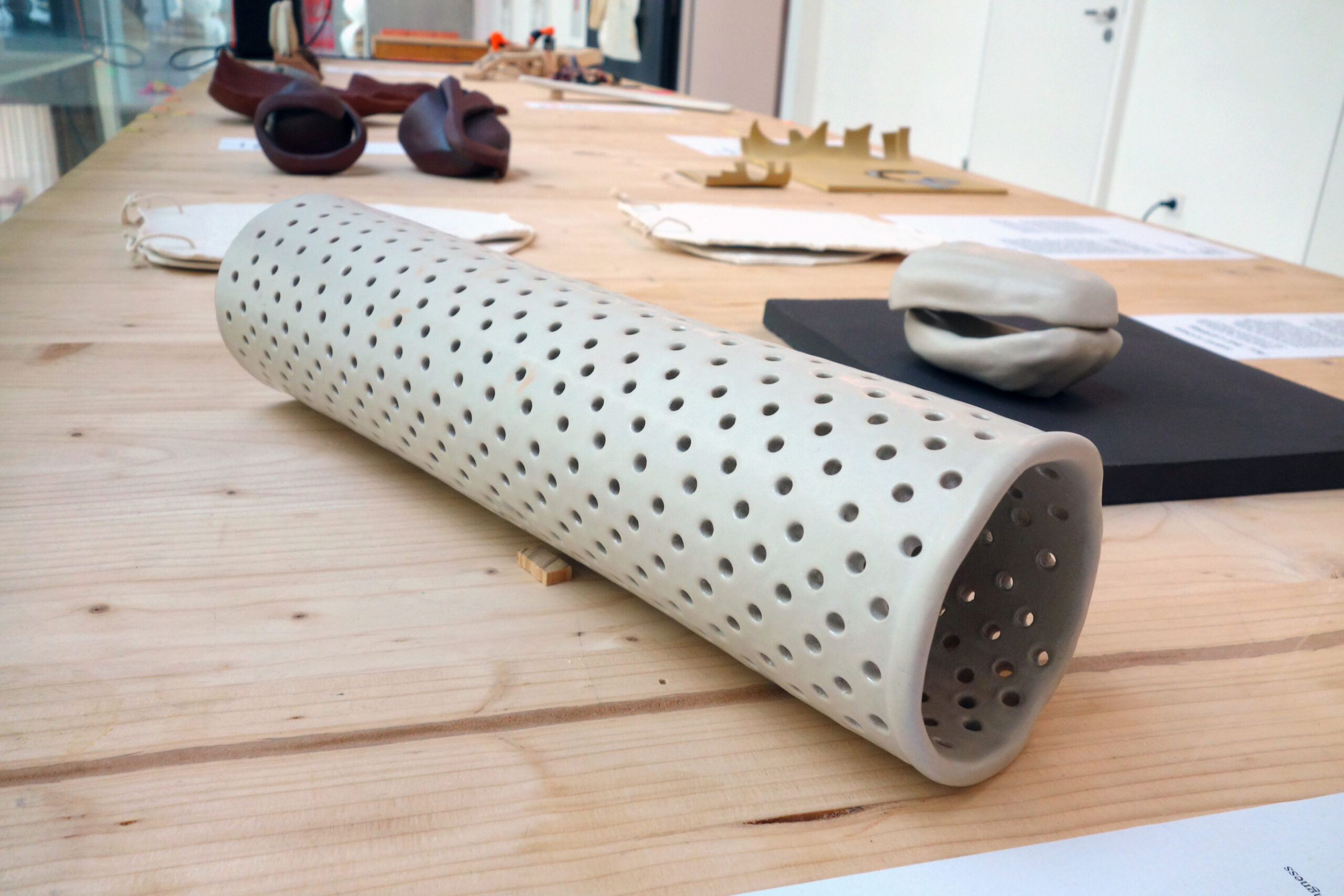
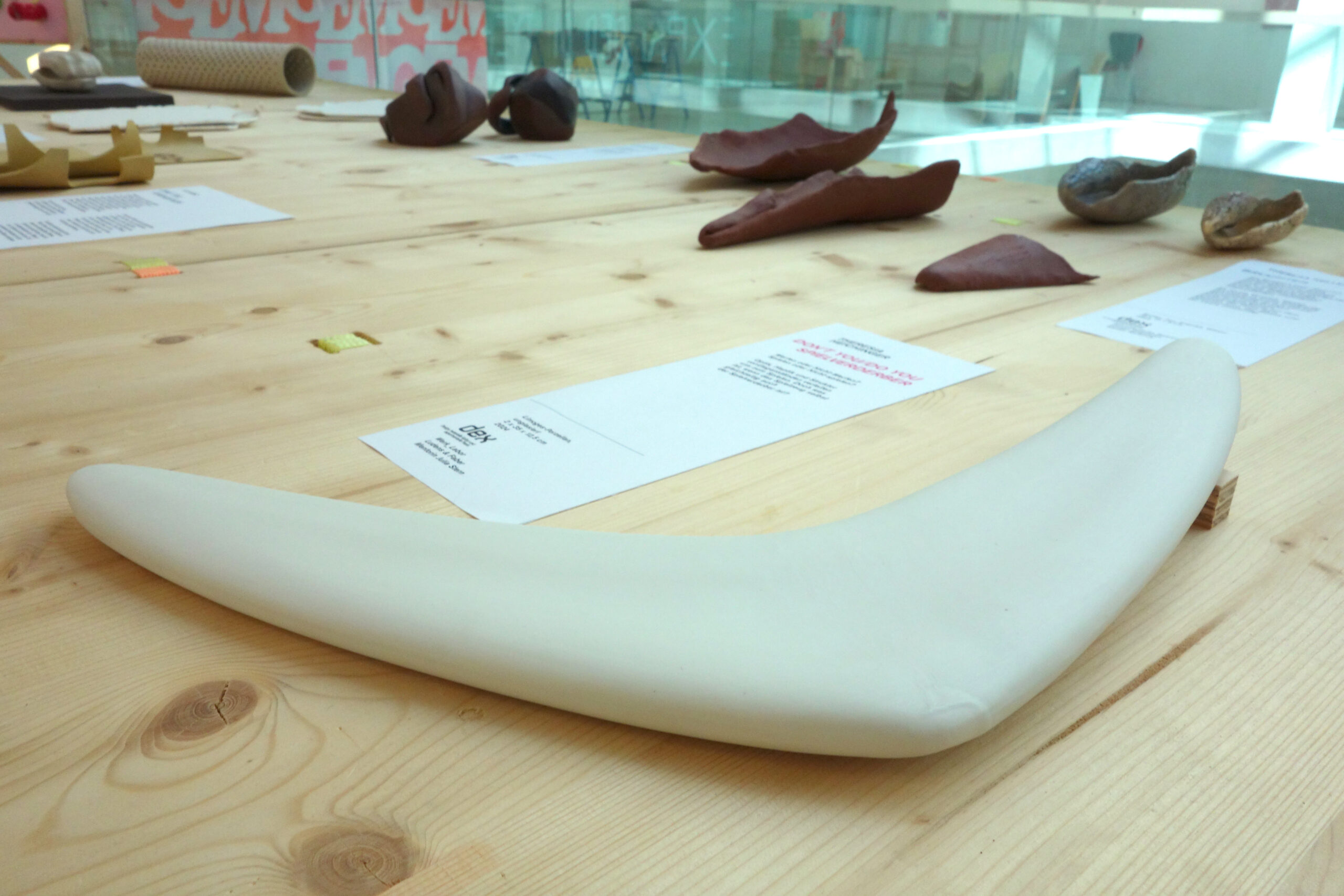
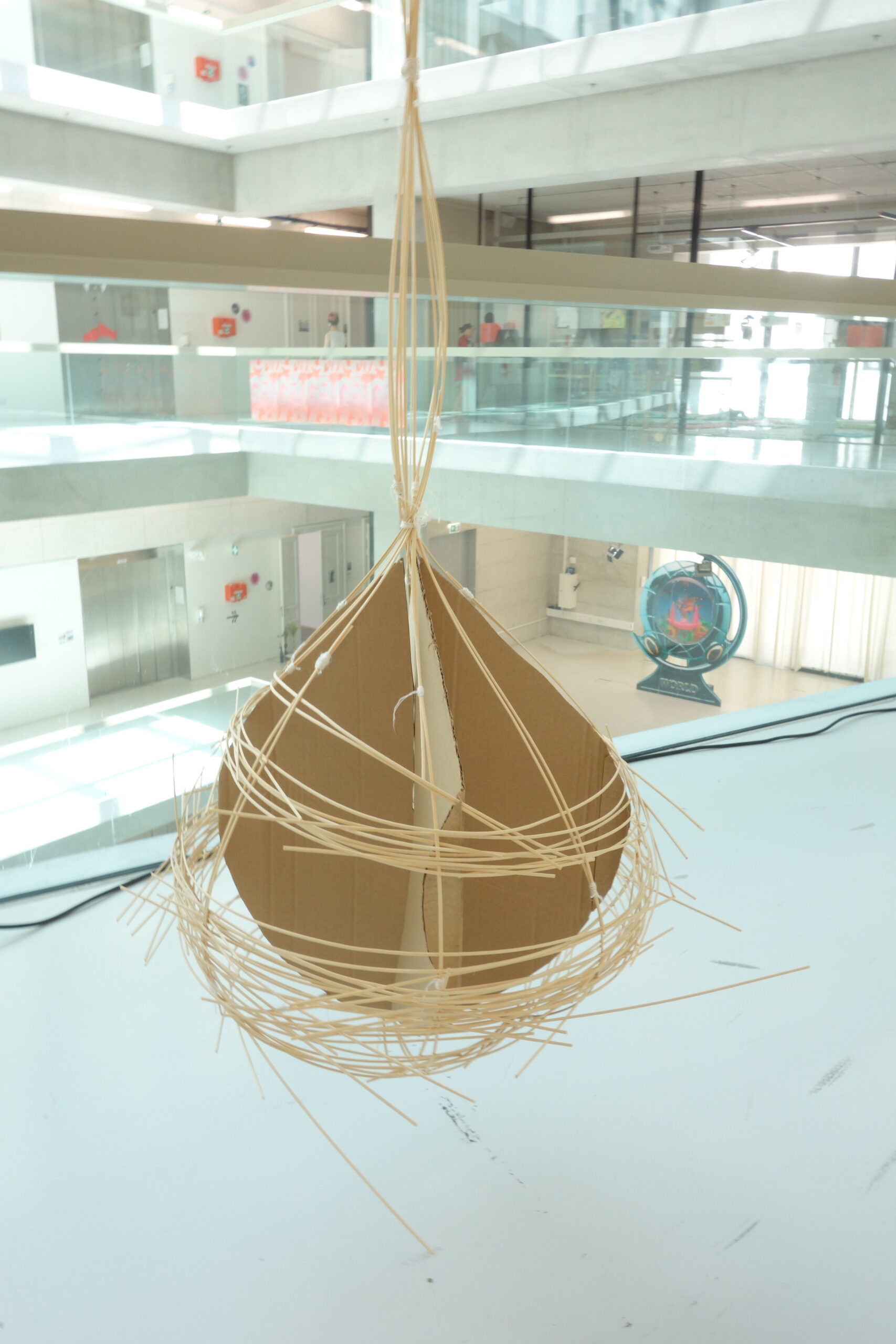
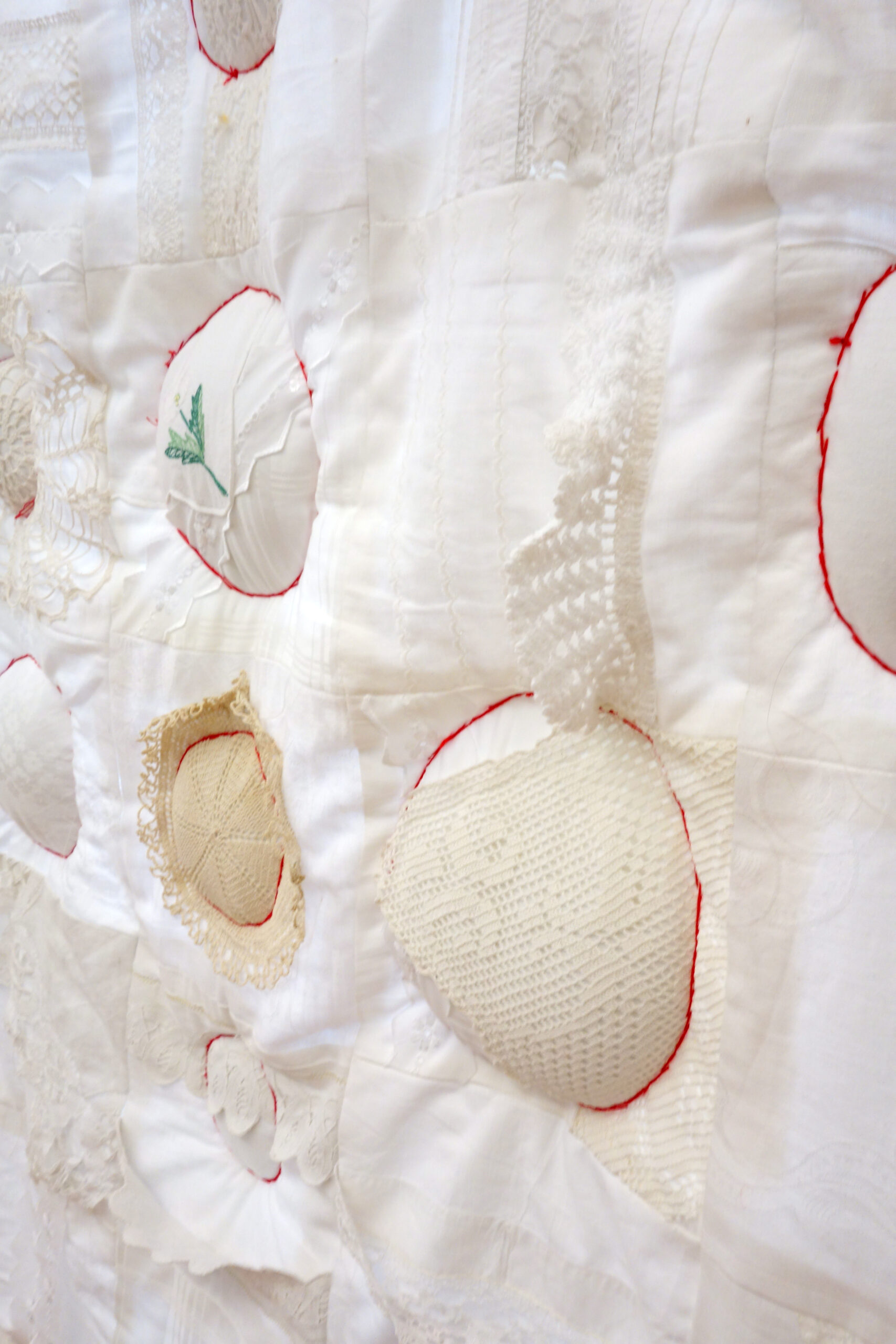
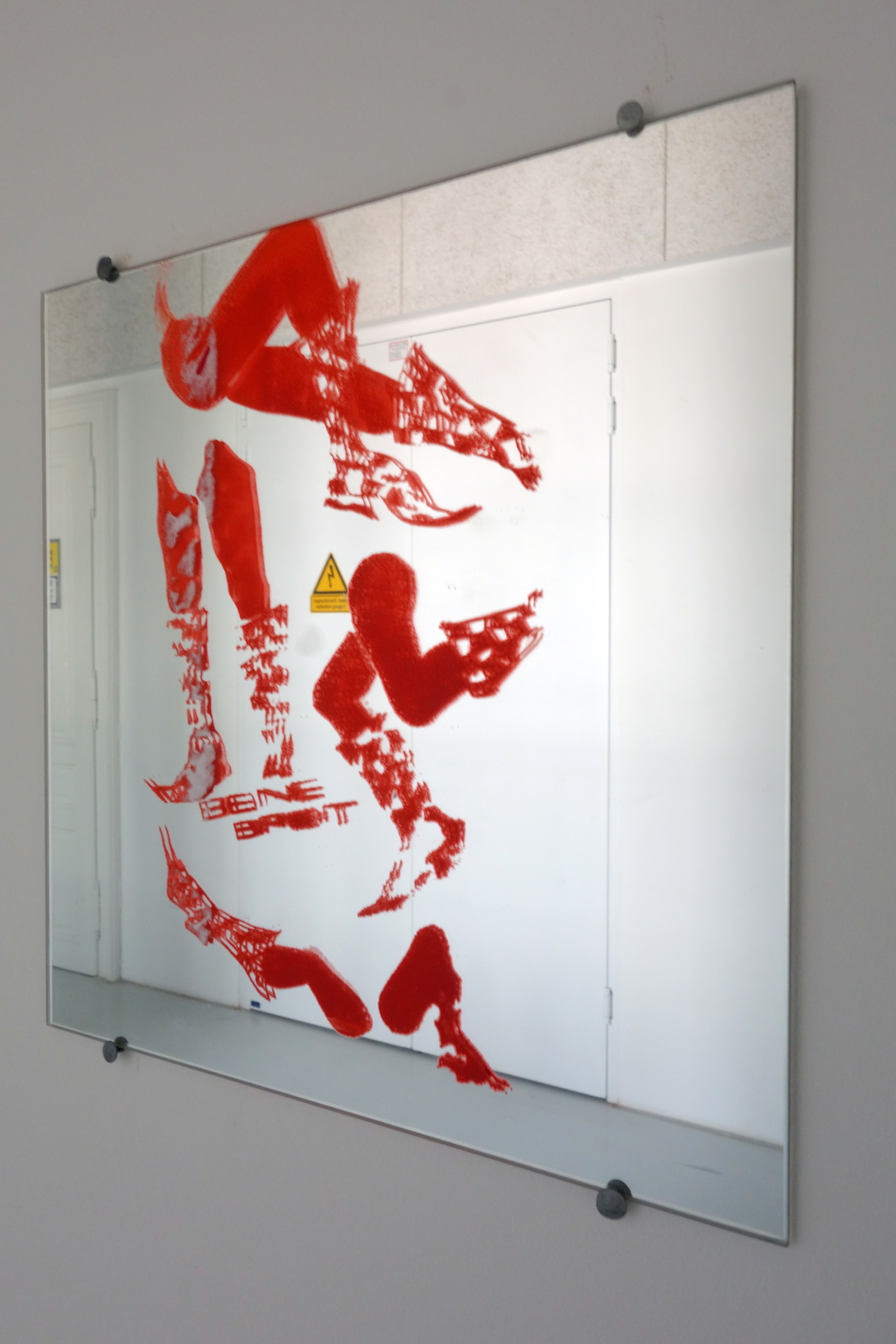
SPACEX – Spatial Practices in Art & Architecture for Empathetic Exchange (Barbara Holub)
SPACEX responds to the troubling rise of populist nationalism and conflict in European societies by engaging new publics and forging a culture that embraces diversity, difference, and discursive exchange within cities, towns and urban sites. Spatial Practices in Art and ArChitecture for Empathetic EXchange (SPACEX) is a transdisciplinary research action that utilises secondments between academic institutions and third sector organisations in order to scope and map European spatial practices. The lack of interdisciplinary knowledge by those working in the cultural sector has significantly affected the way in which the social benefit of cultural activities is understood, articulated and applied. SPACEX proposes that inventing new and inclusive ways of living together, requires the implementation of new transdisciplinary and cross-sectoral practices and methods, that connect spatial practice with cultural sociology, cultural policy, critical pedagogies and behavioural economics.
The University of Applied Arts Vienna is one of the 29 academic and non-academic partner organisations of SPACEX.
Barbara Holub is the principal investigator on behalf of the University of Applied Arts.
Secondments at the University of Applied Arts:
Margot Mecca (Festival dei Popoli, Firenze/ Italy)
Maria Loizidou (AA & U for Architecture, Art and Urbanism, Lefkosia, Cyprus)
Avril Corroon (Project Arts Space, Dublin/ Ireland)
Barbara Holub (Van Abbe Museum, Eindhoven/ Netherlands; NN Contemporary, Northampton/ UK)
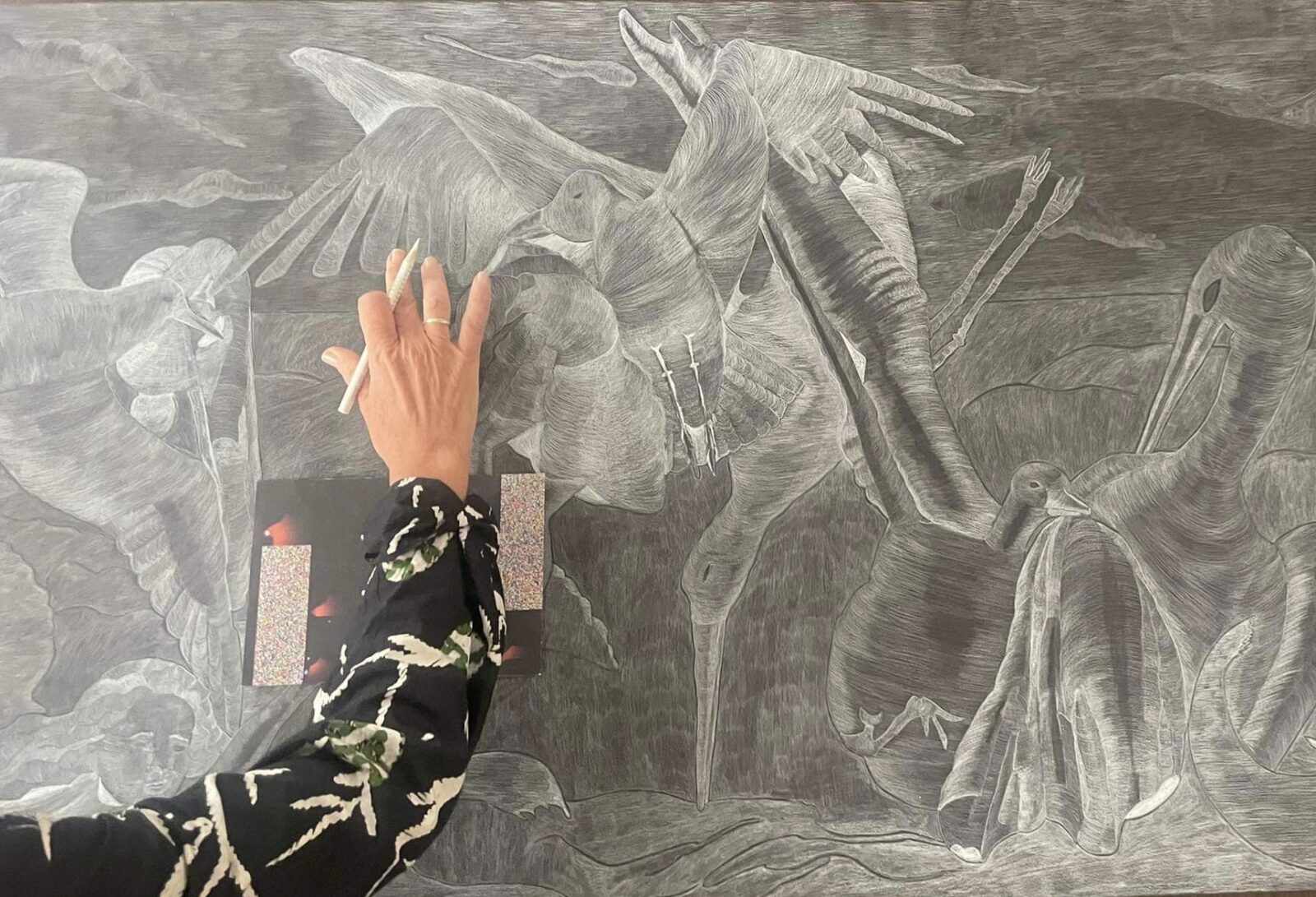
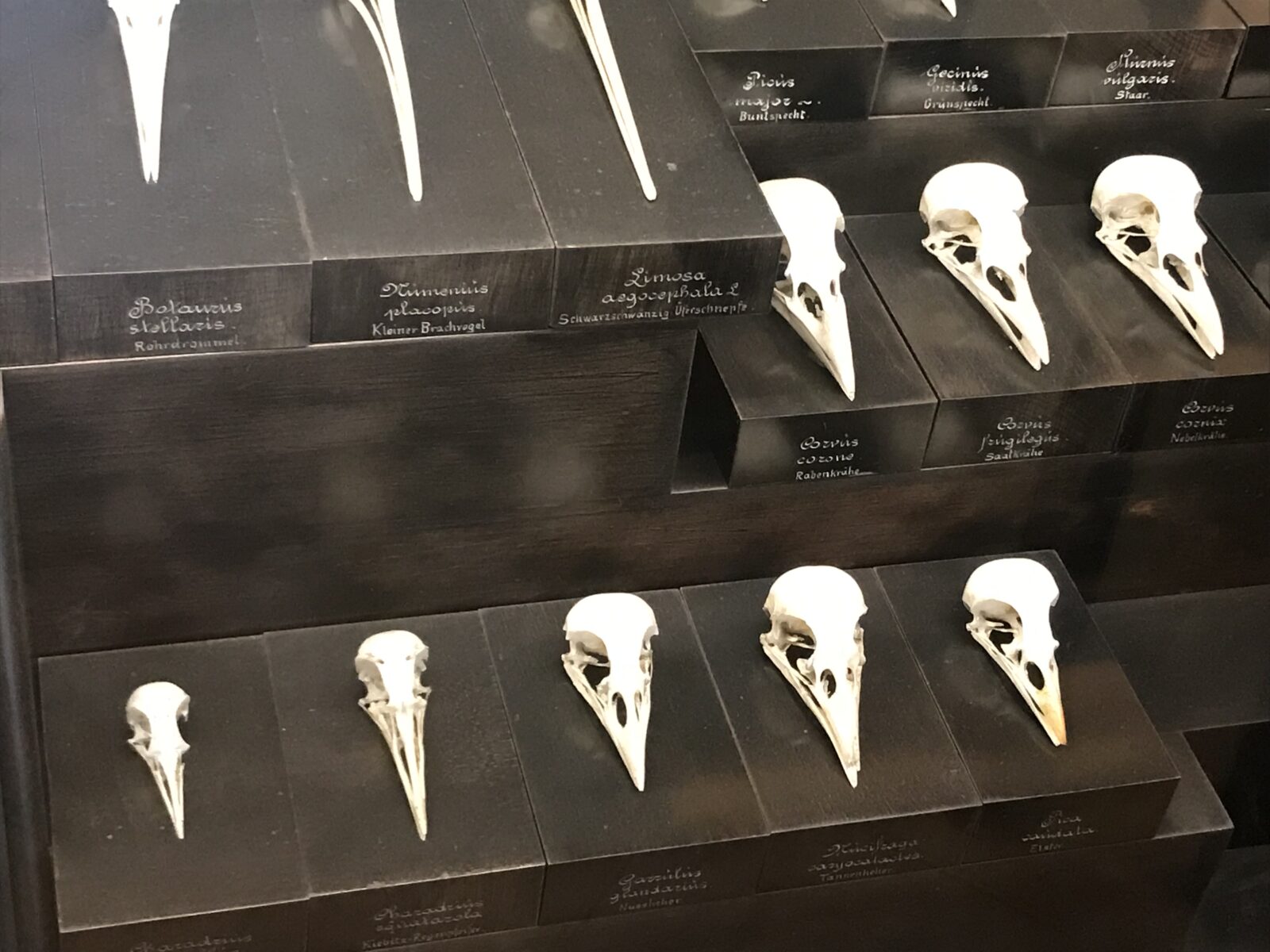
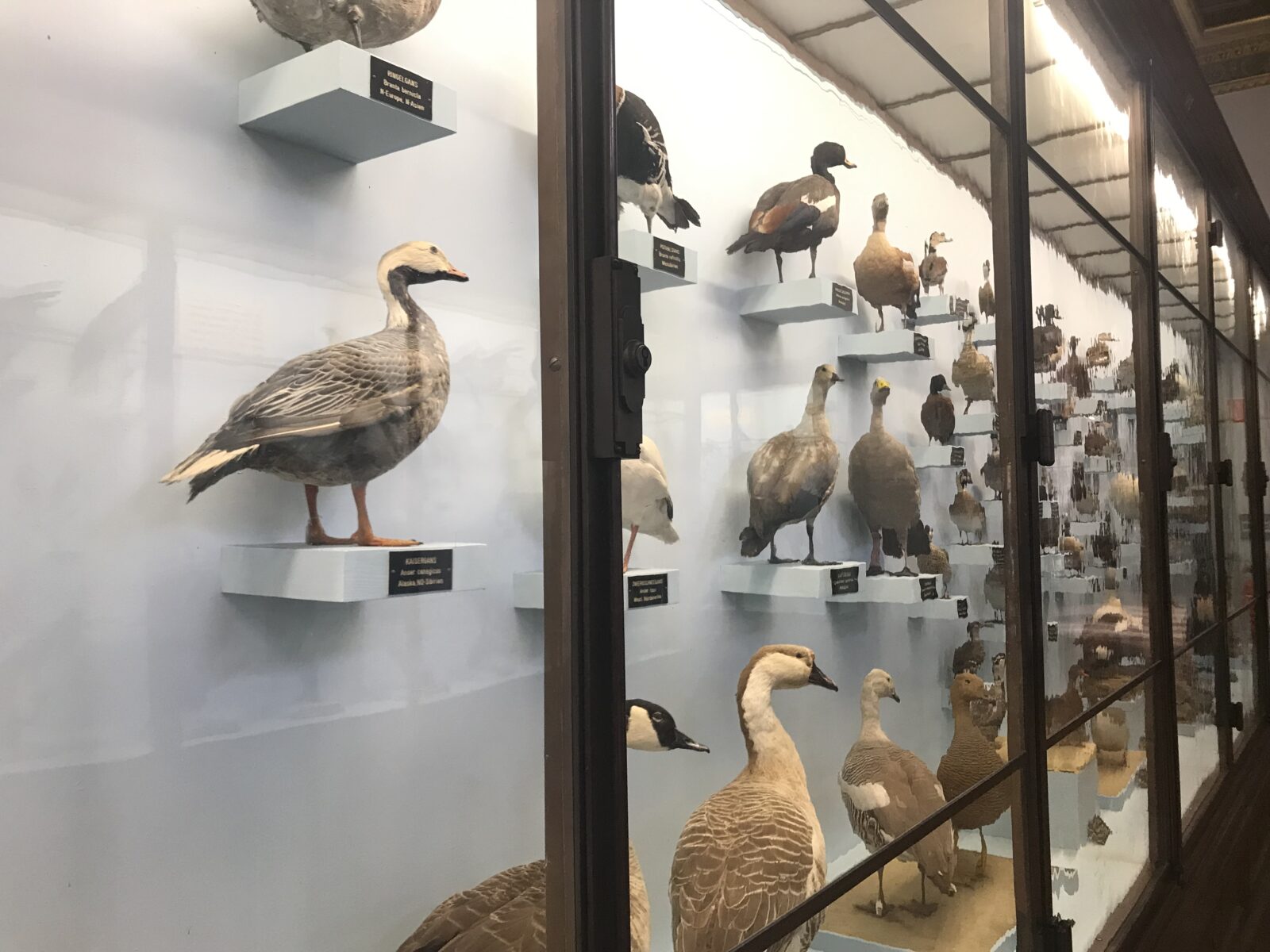
Project website: https://www.spacex-rise.org/
Angewandte Festival 2021
Die Ausstellung zeigt 18 künstlerische Projekte, mit denen Studierende 2020/21 im künstlerischen Lehramt abgeschlossen haben. Das breite thematische wie mediale Spektrum der Arbeiten korrespondiert mit dem weitgespannten Curriculum und macht gleichzeitig sichtbar, wie sich Studierende mit ihren persönlichen Interessen darin verorten. Die Abteilungen kkp, dae und tex bieten sowohl in Hinblick auf künstlerische Medien wie Praxen vielfältige Grundlagen an, auf welchen Studierende mit individuellen Schwerpunktsetzungen aufbauen. Das kontinuierliche Einbeziehen kunst- und kulturwissenschaftlicher Perspektiven und Diskurse unterstützt und schärft das Reflexionsvermögen bezüglich künstlerischer Entscheidungen.
ABSOLVENTINNEN UND PROJEKTE
• Pascale Ballieul: Making Kin With My Fictional Queer Ancestors: Being It Being They Being The Thing Being Frankenstein Being The Monster, or „Oh, Jesus Christ, Lucifer is a Faggot!“ • Jakob Brandstätter: Kämpfende Kinder • Paul Buschnegg: Imagine a Concert about Lost Gardens in a Wood Based Future • Selina Doller: B.L.O.B. – Digitale Reduktion im realen Raum • Nora Eckhart: next to normal • Helene Eisl: ES IST SO • Verena Miedl-Faisst: Rapsak rüf Ytrapretsnom • Natascha Gerold: What Does an Elbow Feel like? • Nargol Gharahshir: Zwischen zwei Alben • Lara Girotto: Grenze und Entgrenzung • Ana Grilc: Jez-i-kati – absurder Raum Koroška/Kärnten • Lisa Maria Gruber: Vorwärts LEBEN. NEBEL sträwkcür • Ida Johanna Hausner: Performance Kalender. Eine Komposition aus Fluxus und Bildnerischer Erziehung • David Heinzl: Körper • Julia Herzog: To overdraw. Weiter ohne Text • Milena Rosa Heussler: Box Quartett • Lisa Marie Pieper: Stellungswechsel • Anna Sanglhuber: Touching on projection. Searching for a moving image • Maja Schrattenthaler: Re-Vulvation – Das Dirndl als Leinwand • Lydia Simon: :innen • Astrid Sodomka: Intarsie
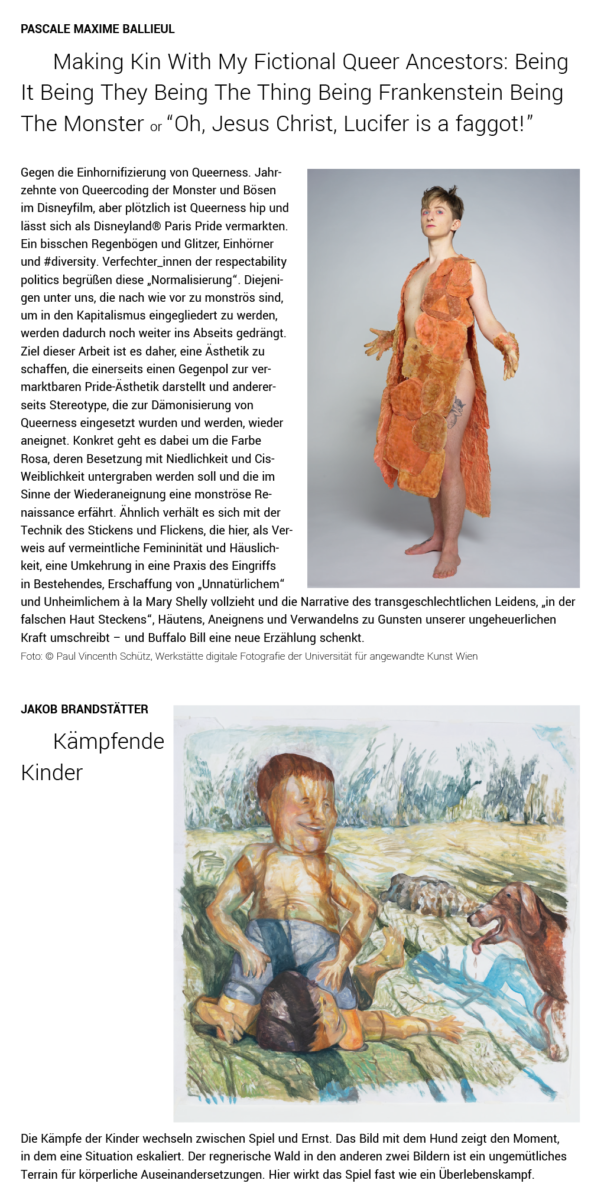
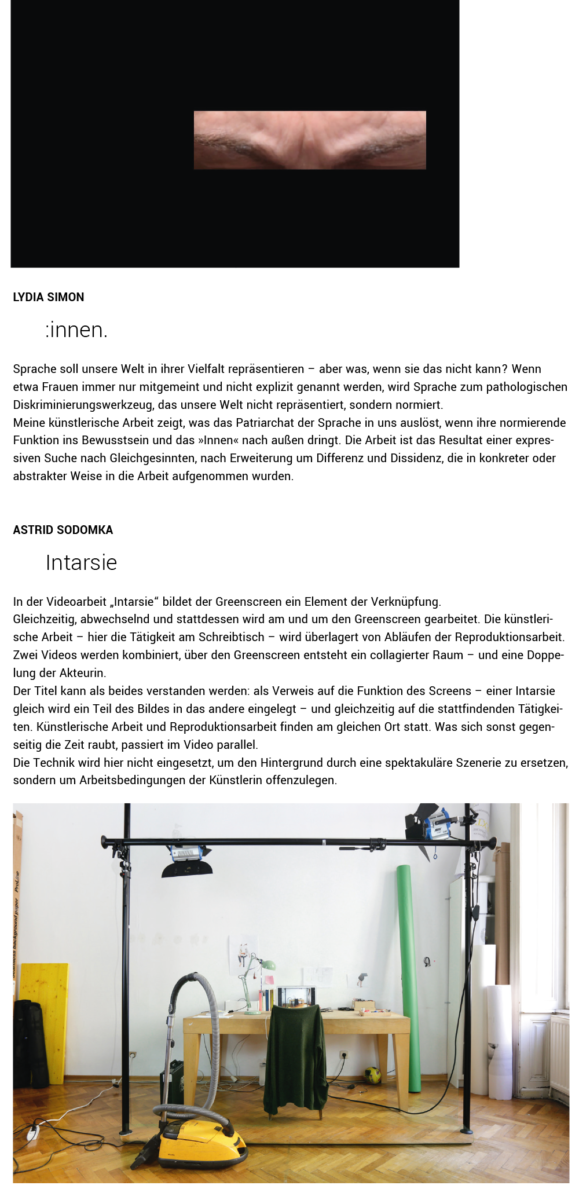
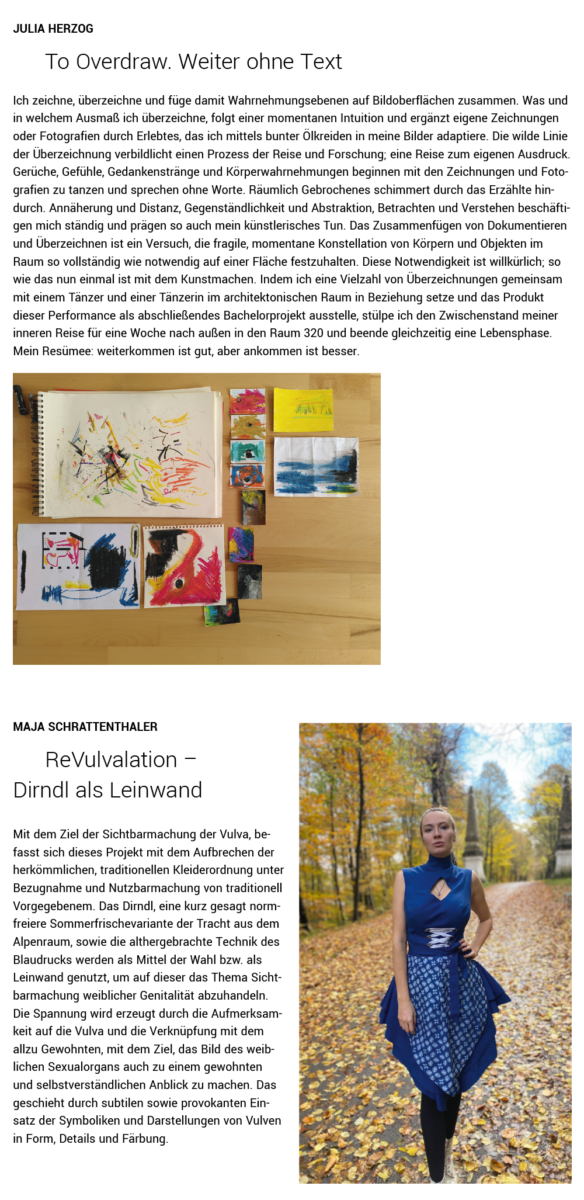
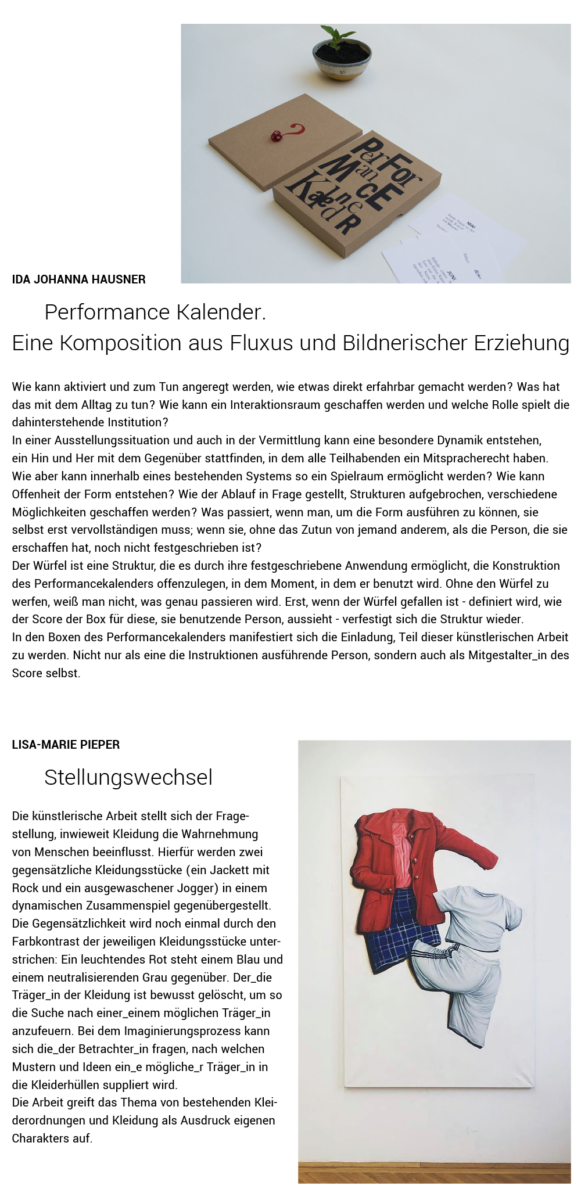
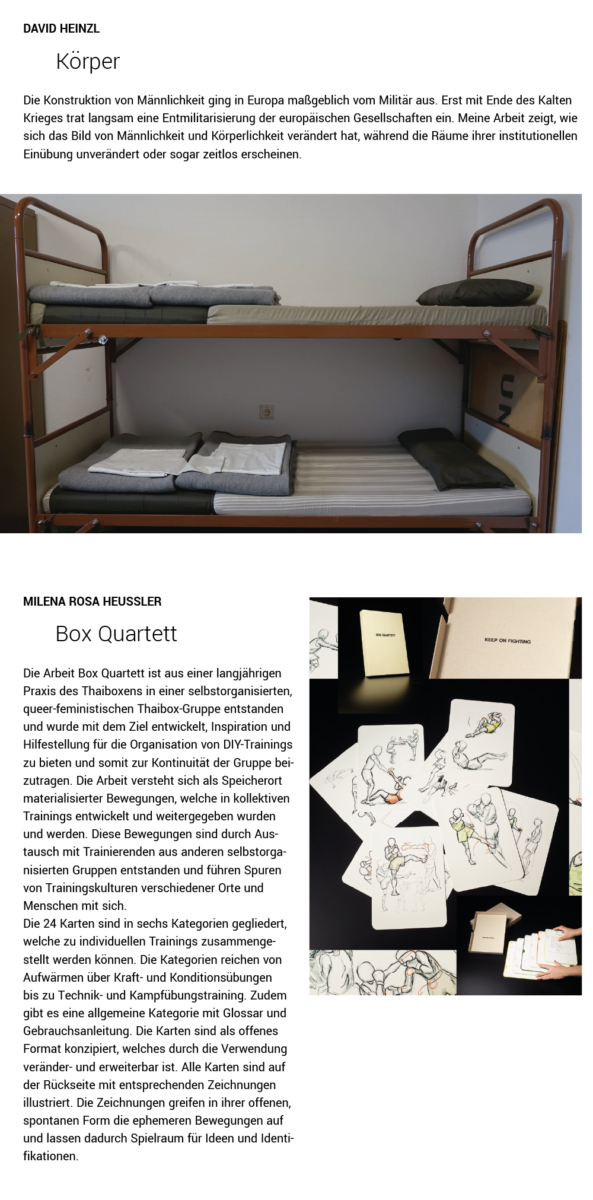
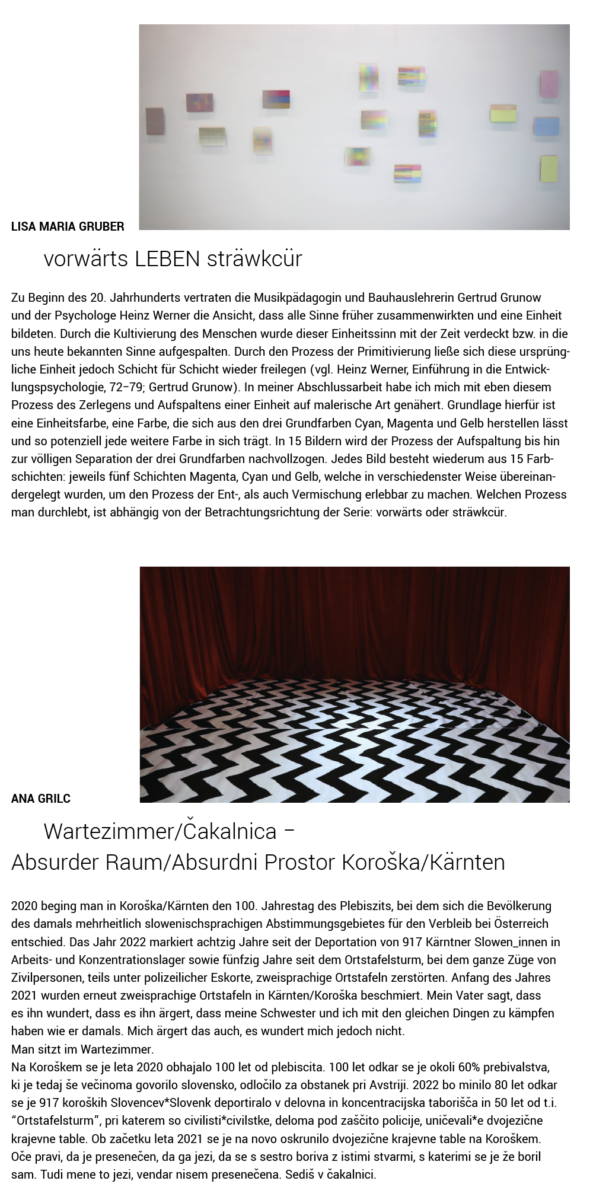
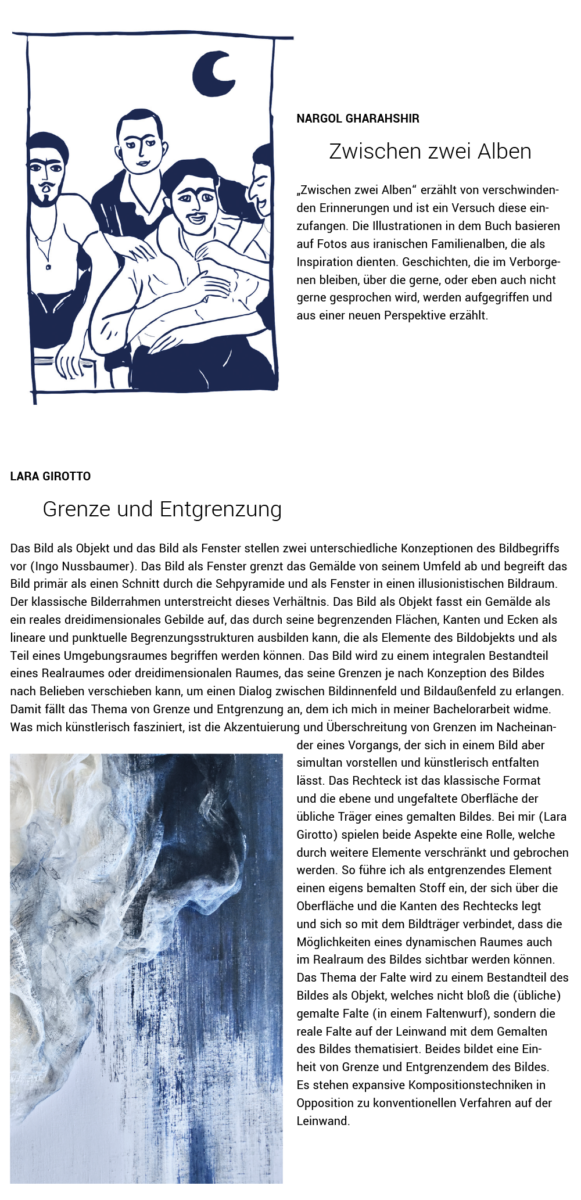
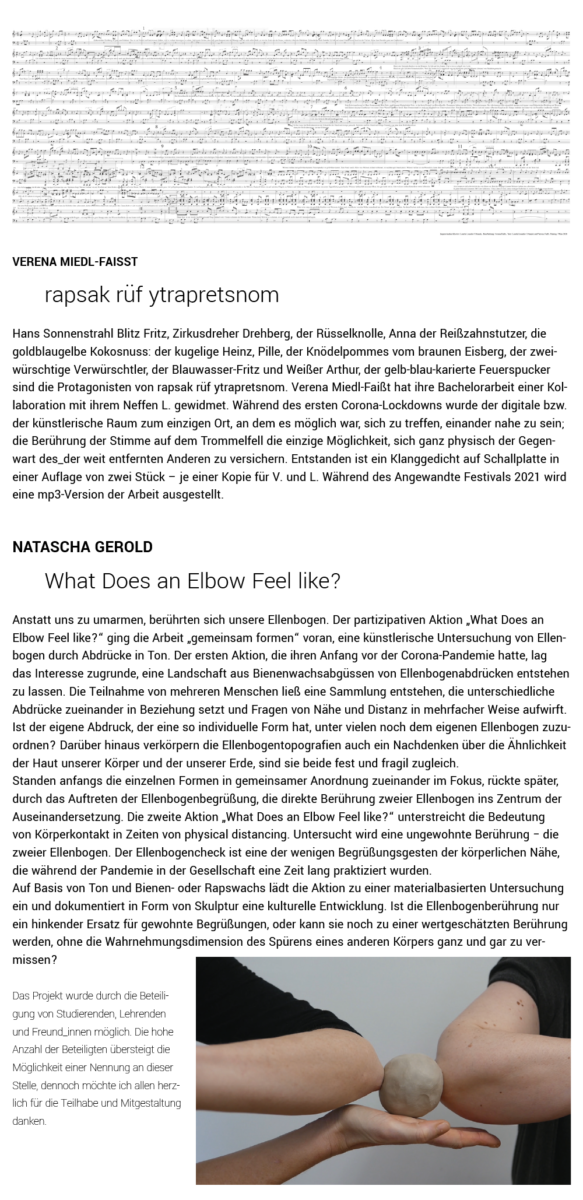
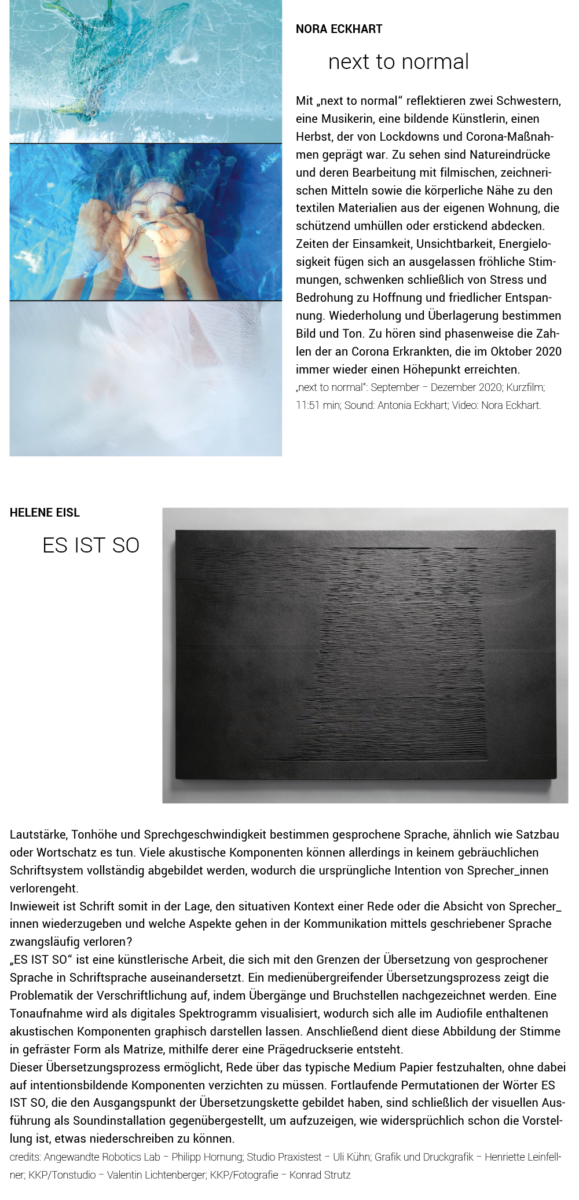
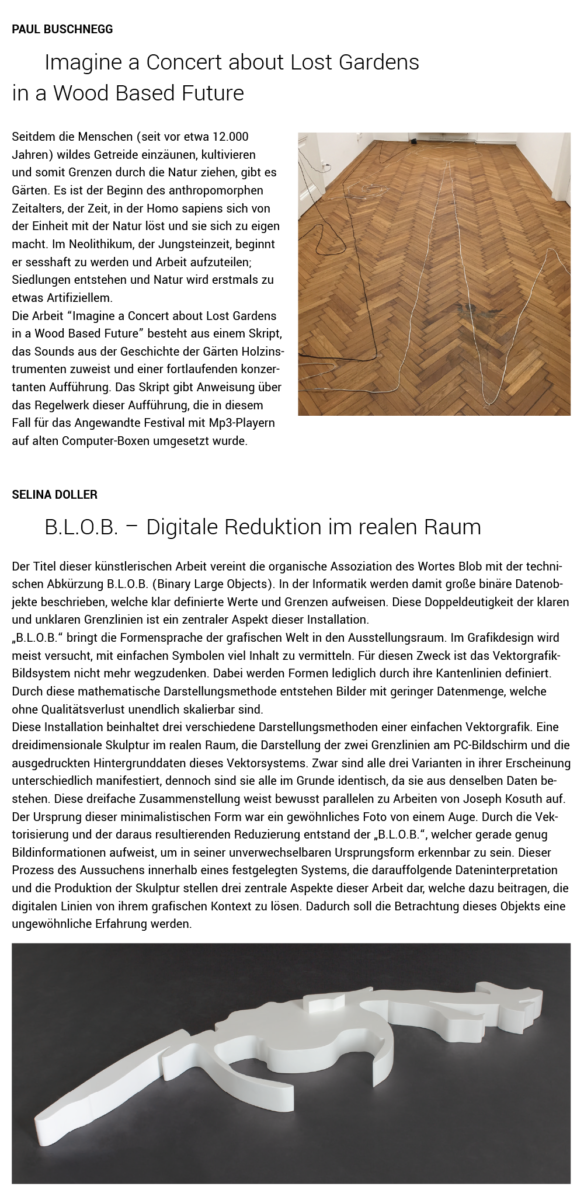
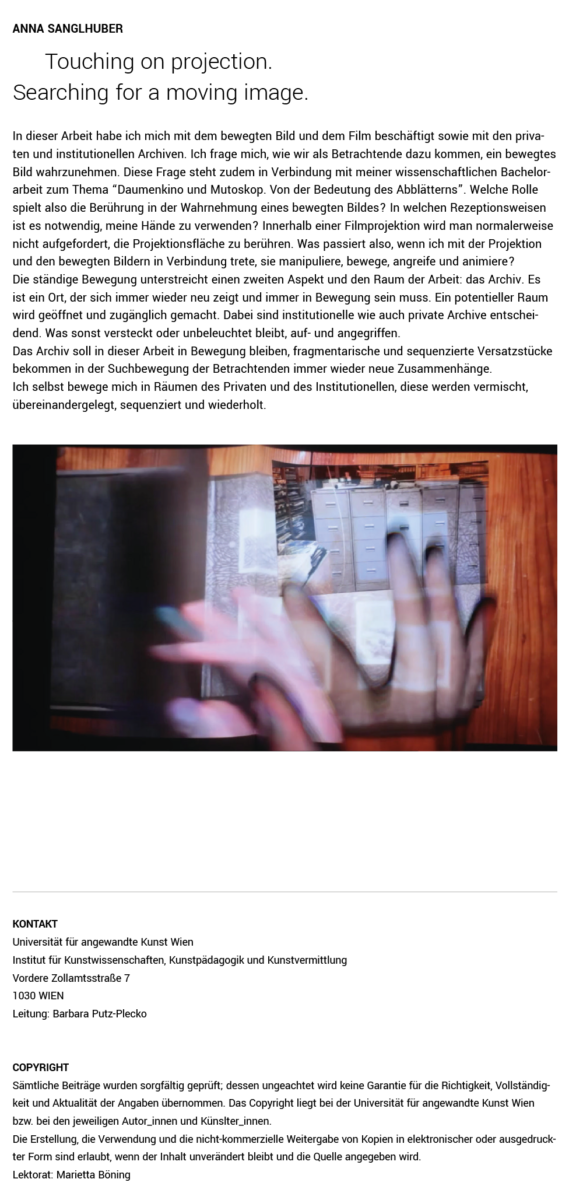
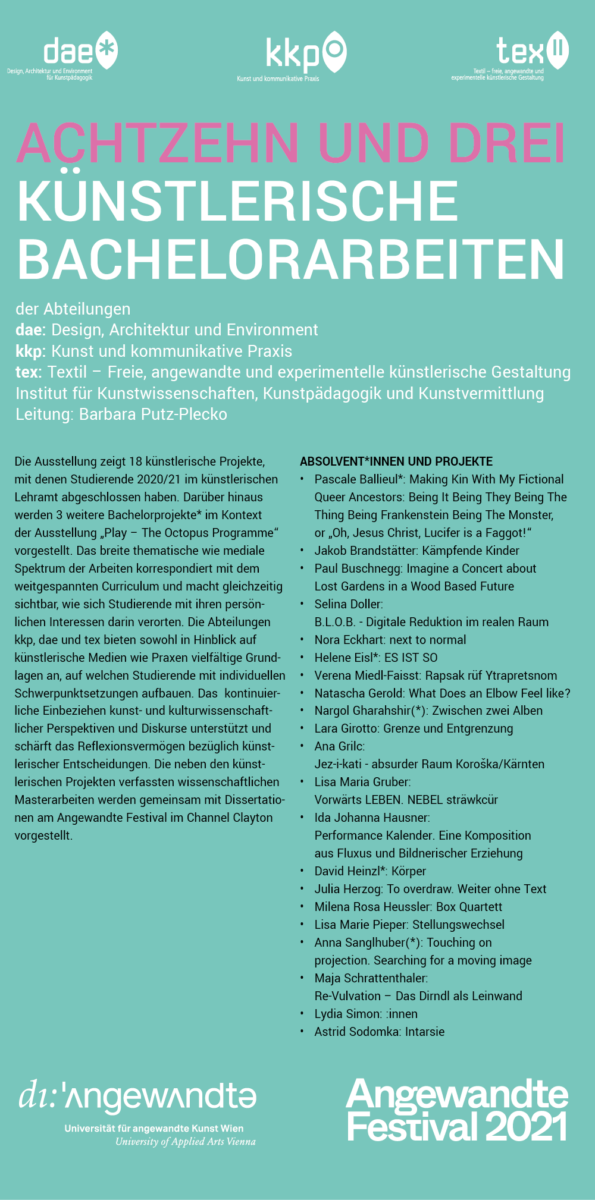
Octopus Programme
The Octopus Programme is a guided research-based educational programme that encourages artistic research and production-based collaborations across academies and art institutions; students and professionals; diverse presentation modes; and processes of research and documentation in different geographies.
While the Octopus Programme functions as a support mechanism for emerging artists, the main objective of the programme is to accumulate experience-based collective and creative output by taking geopolitical, social, ecological, and educational urgencies and diversities into consideration. Correspondingly, the programme intends to develop and point out new critical perspectives and standing points to process artistic research and practices. In this respect, by merging the viewpoints of academic entities and contemporary art institutions along with what they can provide such as mixed facilities and activities, the Octopus Programme would like to develop a progressive methodology by creating its autonomous network.
Project-Website